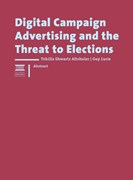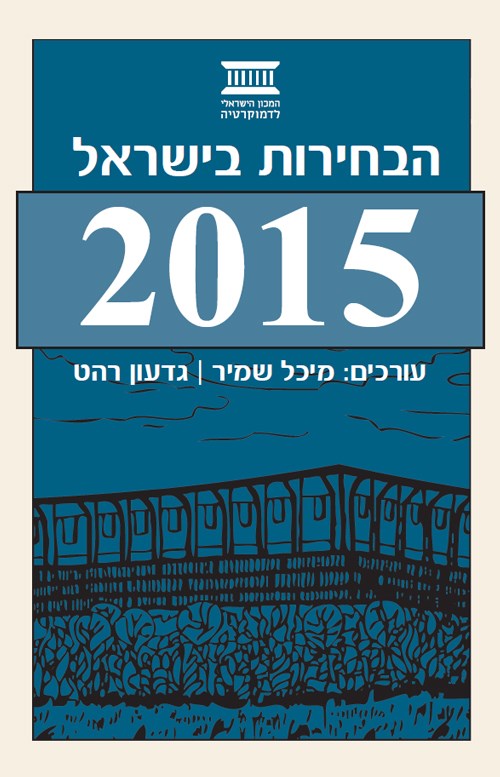

Publications Regarding Elections and Parties
Articles

IDI President Yohanan Plesner on the 2026 Israeli Elections
Written By: Yohanan Plesner
Israel is entering a pivotal election year—its first since the judicial overhaul and the war that began on October 7, 2023. Throughout the year, IDI is asking its experts which issues will shape the election campaign. IDI President Yohanan Plesner is watching three key areas: national security, including efforts to advance regional stability and examine the failures surrounding October 7; ultra-Orthodox conscription, given the IDF’s manpower needs and the post-war reality; and Israel’s democratic character, as questions surrounding the rule of law and checks and balances return to the center of the public agenda.

Israel’s First Elections in the Age of AI Will Test the Integrity of Democracy
Written By: Dr. Tehilla Shwartz Altshuler
With unprecedented technological tools in the hands of foreign and domestic actors, the proliferation of chatbots in the information ecosystem, and outdated regulatory frameworks, the integrity of Israel's 2026 elections will be tested like never before.

Special Review of Public Opinion Ahead of 2026 Elections (IDI's Israeli Democracy Index)
Following the release of the IDI's Israeli Democracy Index earlier this week, we're pleased to present the findings of a special chapter on Israeli public opinion ahead of 2026 national elections in Israel.

A Lower Threshold is Not the Electoral Reform Israel Needs
Written By: Asaf Heiman
Instead of debating electoral reforms that seek to preserve and protect the political interests of those in power, let us focus on electoral reform, such as a semi-open ballot system, that would improve governance, increase accountability, and strengthen democracy.

Parties Withdrawing from the Coalition Due to Ideological Differences
Written By: Prof. Ofer Kenig
This week's announcement of the resignation of the ultra-Orthodox parties from the coalition marks a fairly common case of parties resigning due to matters of religion and state. The following historical analysis looks at parties that have withdrawn from their governing coalitions over the years and the ideological disagreements that led them to do so.

The Case for Common Sense Knesset Electoral Reform
Written By: Dr. Assaf Shapira
In a semi-open ballot system, voters would see electoral lists and be able to select "preferred candidates" when they vote. This commons sense reform would strengthen democracy, allowing for a fuller expression of voter preferences and an increased connection between voters and their elected officials.

Expanding Arenas for Democratic Participation as a Remedy for Political Helplessness
Written By: Prof. Ofer Kenig
Expanding the institutional arenas for democratic participation in Israel - through electoral and structural reforms - can help address the growing sense of political helplessness and strengthen the responsiveness of its democratic system.

Analysis of Voting Trends and Intentions in Israel: Review of 2024
Written By: Dr. Lior Yohanani
An analysis of the potential voting patterns for future elections, voter transitions between parties, and an exploration of the potential electoral power of the Democrats party in upcoming elections.

No Voice: The Lack of Voting Opportunities in Israeli Democracy
Written By: Dr. Assaf Shapira, Prof. Ofer Kenig, Dr. Amir Fuchs, Asaf Heiman
In recent years, it has repeatedly been claimed that “Israel has too many elections.” On the one hand, this is true, Israel has the highest frequency of parliamentary elections compared to all developed democracies. On the other, Israelis have fewer voting opportunities.

New Bill Proposed Expands the Criteria for Disqualification of Electoral Lists
Written By: Dr. Amir Fuchs
A new bill proposes to amend Basic Law: The Knesset, by expanding the criteria that would disqualify candidates and lists from participating in elections based on minimal and even past expressions, interpreted as sympathy or support for armed struggle of an enemy state or terrorist organization.

Could Sderot Have the Same Standing as Tel Aviv? Perhaps If We Reform the Electoral System
Written By: Dr. Assaf Shapira, Prof. Gideon Rahat
Israel is the only OECD member that has neither regional elections nor a personal element in the electoral system. This is not simply a technical issue but has far-reaching implications relating to the quality of representation and the obligation elected officials have toward their voters.

Labor and Meretz Merge to Form “The Democrats”—Consequences and Implications
Written By: Dr. Assaf Shapira
The Labor and Meretz parties recently announced their intention to merge. Though these are relatively small parties today—Meretz has no representation at all in the current Knesset, and Labor has just four seats—this is still a significant event from a historical perspective and within the Zionist left.
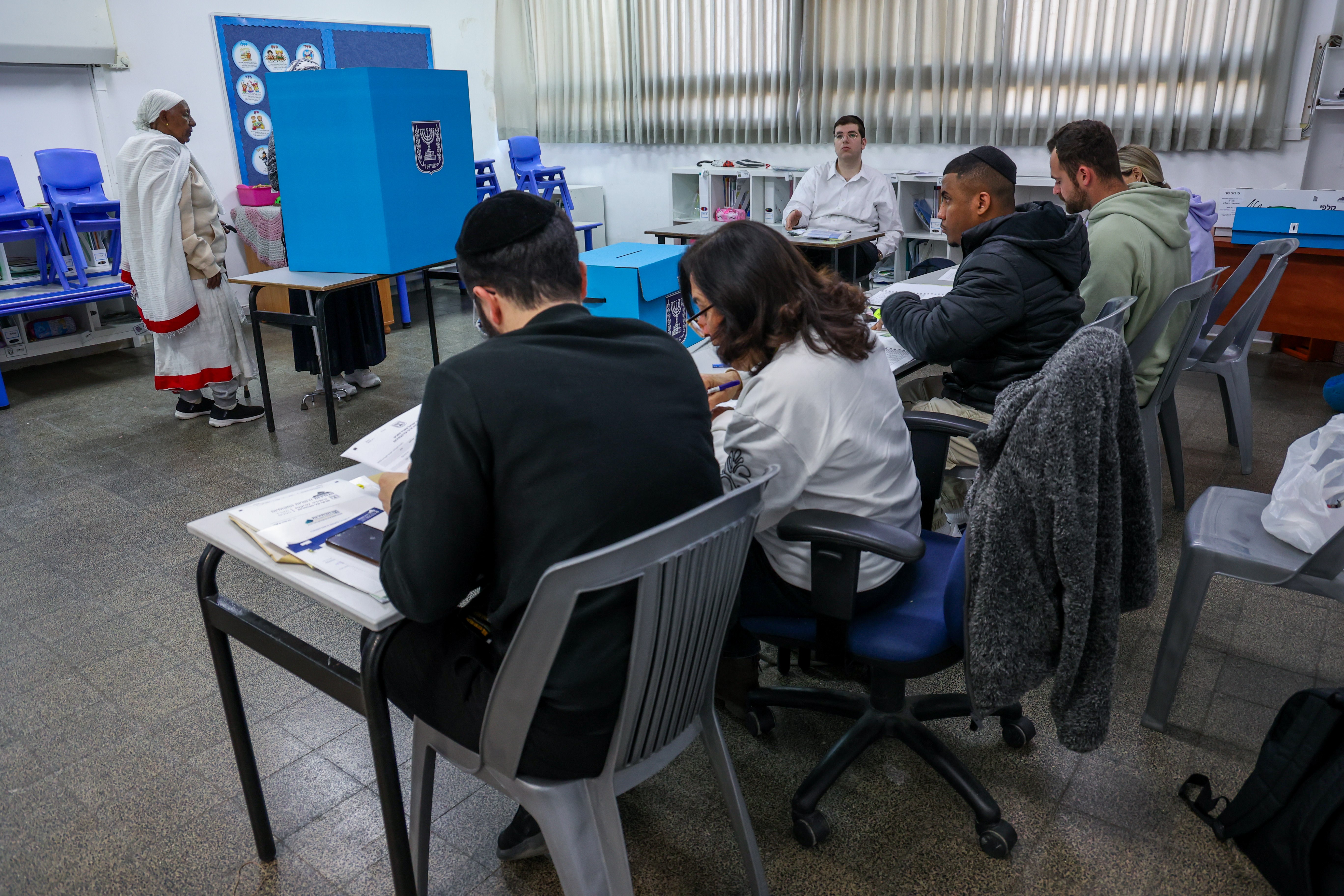
Analysis of the 2024 Local Elections
Written By: Dr. Ariel Finkelstein
On February 27, 2024, elections were held in 242 localities throughout Israel. The following analysis reviews the results of the elections from a number of angles.
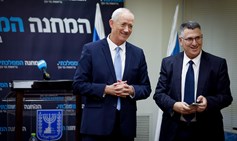
The Disbandment of the National Unity Party Does Not Contribute To Political Stability
Written By: Dr. Assaf Shapira
The National Unity faction in the Knesset is disbanding and reverting into the two parties that composed its list of candidates in the last election. The splitting of joint lists does not contribute to political stability. It contributes to fragmentation within the political system and may be perceived as political cynicism.
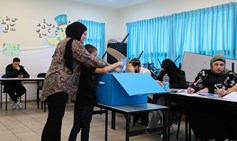
When Violence Dominates Local Arab-Israeli Elections, Democracy Loses
Written By: Dr. Yael Litmanovitz, Dr. Muhammed Khalaily
Arab-Israeli public officials are being increasingly targeted by criminals, hoping to get their way through threats, extortion and force ahead of Tuesday's local elections. Running for office shouldn't cost people their lives.

Local Elections: A Much Needed Balance of Power
Written By: Dr. Ariel Finkelstein
The local elections this week in Israel—taking place at a time of war—have many Israelis asking, perhaps louder than usual, is it actually important to vote in these elections? The answer to this question is a resounding yes.
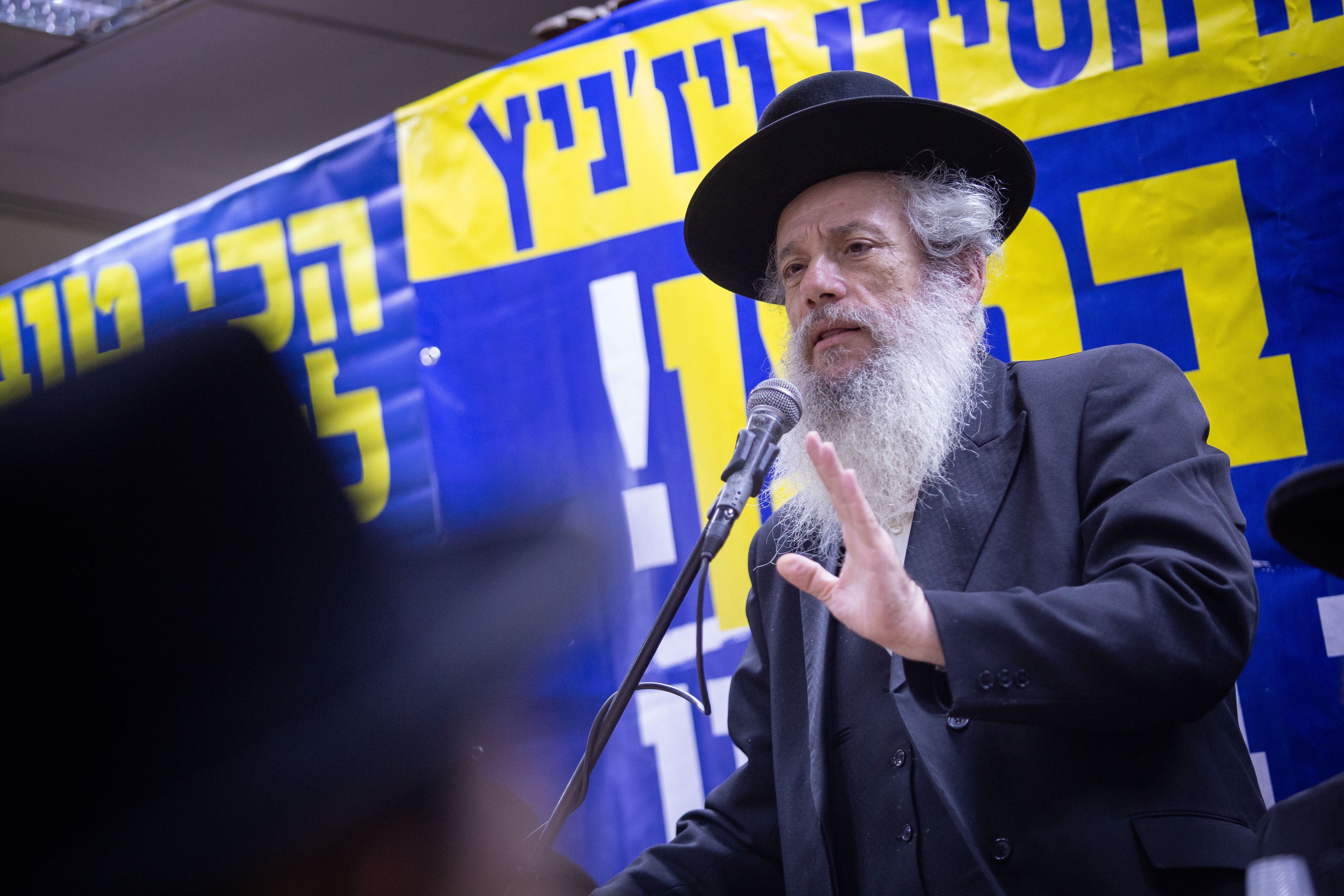
The Political Structure of Haredi Local Authorities and Its Influence on How They Operate
Written By: Dr. Ariel Finkelstein
How are elections in ultra-Orthodox municipalities different from those in non-orthodox local authorities? Are they comparable to the Arab community? A survey an analysis of the political structure of Haredi local authorities.
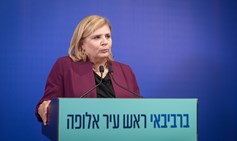
Representation of Women in Elections for Local Authority Heads
Written By: Dr. Itamar Yakir, Dr. Ariel Finkelstein, Yechiel Noam
From a historical perspective, the proportion of female heads of local authorities in Israel has been extremely low—essentially negligible throughout most decades. How does women’s representation in local authorities during the first two decades of the 21st century compare?
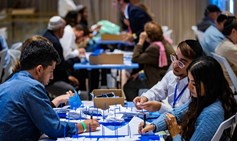
After the judicial reform, the electoral process is next
Written By: Prof. Ofer Kenig
When there are no restraints on what the government can do, the road will be open to “adjustments” (tricks) and “reforms” (schemes and conspiracies) in the electoral process.
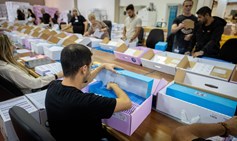
Israel's Electoral System Prevents Accountable Governance
Written By: Dr. Assaf Shapira, Yaniv Roznai
In the system of democracy currently in place in Israel, Knesset members represent the public. This is indisputable. However, the ties between the public and its representatives are very weak.
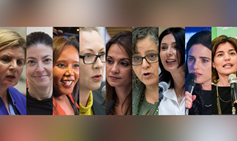
The Decline in Women’s Representation in Israel's Political System: Analysis
Written By: Prof. Ofer Kenig
Just one year ago, women’s representation in Israeli politics soared to an all-time high—in the Knesset, in the Government, and in local authorities. But today, we are going backwards. The approach of International Women’s Day is an appropriate time to look at the current situation and express concern as to this trend.
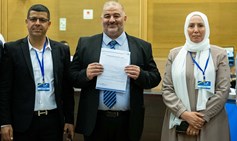
Arab Politics in Israel: A Balance Sheet of Five Knesset Elections (2019–2022) and the Challenges of the Future
Written By: Dr. Arik Rudnitzky
Arab politics in Israel consists of two interconnected levels: One relates to the configuration of the parties ahead of the elections; the other – to Arab voting behavior on Election Day. Election results in Arab society depend on the interaction between these two levels.
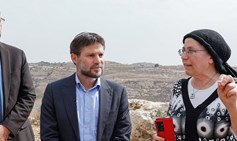
Disbanding of the Religious Zionism Faction
Written By: Dr. Assaf Shapira
Joint lists that fall apart quickly often do more harm than good, heightening political divisiveness and instability
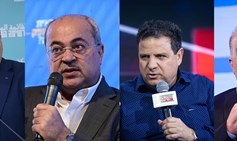
Arab Politics in the 2022 Election Campaign
Written By: Dr. Arik Rudnitzky
Will the Arab public’s belief in Knesset elections in general, and in the Arab political lists in particular, will be strengthened. The Arab voter may overcome unjust policies by the government, but not internal crises. Dr. Rudnitzky reviews the main political and ideological streams in Arab society in Israel, ahead of the November 2022 elections
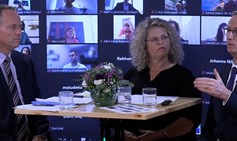
IDI Diplomatic Briefing – Elections 2022
Written By: Yohanan Plesner , Dr. Arik Rudnitzky
Diplomatic briefing with IDI President Yohanan Plesner and Researcher Dr. Arik Rudnitzky on Israel’s fifth national elections in less than four years. The briefing focused on the electoral crisis, the state of Israeli democracy as well as the latest developments regarding the political parties and voting patterns of Arab Israelis.

Fixing the System: A New Look
Written By: Prof. Gideon Rahat
The current political instability is the result a breach of accepted rules of the game that are based on assumptions about the nature of politics—and even of human nature.

Election Campaign Advances from the Public Purse
Written By: Dr. Assaf Shapira
The current campaign finance system in Israel incentivizes existing parties and creates a closed club where its difficult for new parties to compete. How can the system be reformed?
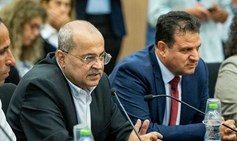
Ideology isn’t a Dirty Word
Written By: Dr. Muhammed Khalaily
The disintegration of the Joint List is arousing diametrically opposite reactions from the two big blocs of the Israeli political spectrum. How will this new political reality play out in the upcoming elections?
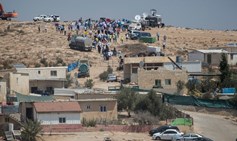
Democracy for All
Written By: Dr. Muhammed Khalaily
Democracy is not just majority rule, but ensuring that all segments of society are provided with the opportunity to take part in a free and fair political process. For Israel, this means ensuring that the Bedouin population has equal opportunity to place their vote in the upcoming election.

Israel Only Parliamentary Democracy With MPs Serving on Central Election Committee
Written By: Dr. Dana Blander
The study, by Dr. Dana Blander, finds that Israel is the only country where sitting members of parliament serve as members of the body that administers and oversees the elections, without any threshold conditions. The members of Knesset and the other members that are party representatives sitting on the Central Election Committee have the authority to make consequential decisions regarding to the election they themselves are usually competing in - including disqualifying lists and the candidates running against them in the election.
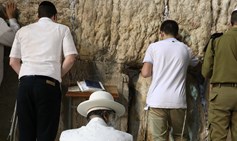
Voting Patterns of Jewish Israelis in the March 2021 Elections by Religious Affiliation
Written By: Dr. Ariel Finkelstein
How much does religious affiliation influence the votes that Israelis cast in the ballot box? Central Bureau of Statistics data and Viterbi Center surveys are used to present a comprehensive picture.
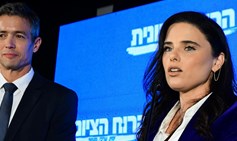
Does the Yamina and Derech Eretz Merger Bring More Stability?
Written By: Dr. Assaf Shapira
Joint lists decrease political polarization in the Knesset, but this might not hold true when it comes to artificial mergers and parties that have never proven that they represent a significant portion of the population.
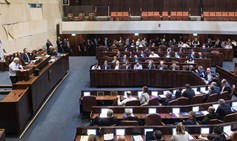
Who Does the Seat in Parliament Belong to The Party Faction or its Individual Member?
Written By: Dr. Assaf Shapira, Avital Friedman
Israel has a closed electoral system, so that on election day, the country’s citizens do not vote for individual representatives, but rather-for a list, which subsequently evolves into a faction in the Knesset. What does that mean in terms of balancing the power between the party and individual parliament members?

3 Comments on the Labor Party Leadership Primaries
Written By: Prof. Ofer Kenig
Merav Michaeli just became the first Labor leader to win reelection since the party adopted the ‘primaries’ system in 1992. IDI expert Prof. Ofer Kenig presents three pertinent insights on the state of democracy in the party founded by the leaders who established Israel.
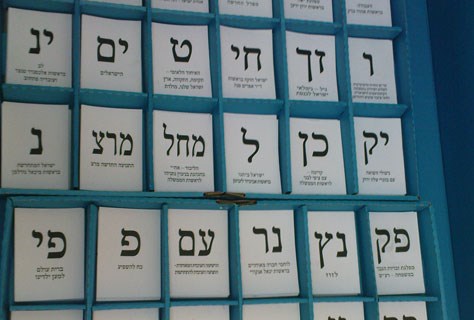
Majority Think Low Chances Next Election will End Gridlock
Written By: Prof. Tamar Hermann, Dr. Or Anabi
51% of Israelis are satisfied with the decision to hold new elections and 62.5% will vote for the same party as the last election; 57.5% of Israelis think that there is a low likelihood of a stable government being formed after the election

Five (Elections) in Less Than Four (Years)
Written By: Prof. Ofer Kenig
Israel is about to hold its fifth election in less than four years. With elections taking place every 2.4 years, this places Israel first in the world in terms of frequencies of elections since 1996.
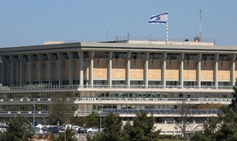
Behind the Dissolution of the Knesset
Written By: Dr. Assaf Shapira
What majority is required to pass a law to dissolve the Knesset on the various readings? After the Knesset is dissolved, how do it and the Government function? What do things look like right now?
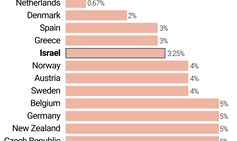
IDI Experts on the Proposed Bill to Lower the Electoral Threshold
Written By: Prof. Ofer Kenig, Dr. Amir Fuchs, Dr. Assaf Shapira
Lowering the electoral threshold will only further fragment Israel's political system
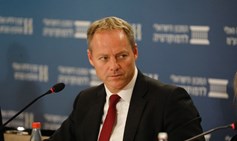
Is There Any Way Out of Israel's Never Ending Election Cycle?
Written By: Yohanan Plesner
As Israel prepares for the dispersal of the Knesset, which will lead to the fifth election in less than four years, CNN's Hadas Gold spoke with Yohanan Plesner to unpack what all this means
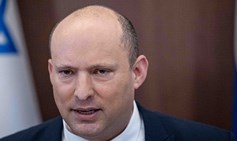
Israel's Worst Political Crisis Is Not Over
Written By: Yohanan Plesner
A fifth election in three years, is a clear indication that Israel’s worst political crisis did not end when this government was sworn into office.
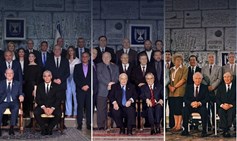
Dissolving the Knesset: A Historical Survey
Written By: Dr. Chen Friedberg, Dr. Assaf Shapira
The Knesset might be dissolved before the end of its term – a phenomenon not unique to Israel, but rather common to almost every parliamentary democracy providing a degree of flexibility.
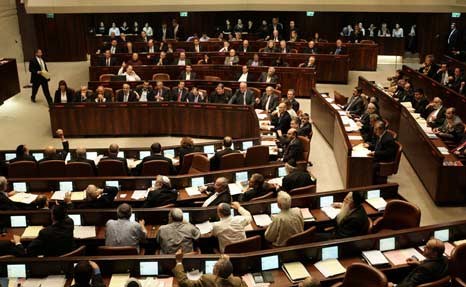
The Many Ways to Dissolve the Knesset 2022
Written By: Dr. Dana Blander
The unlikely coalition that survived thanks to the one vote has lost the parliamentary majority. Does this mean that the Knesset will disperse and new elections will be held? Dr. Dana Blander explains the different ways in which the Knesset can be dissolved and discusses the relationship between these mechanisms and government stability in a parliamentary system.
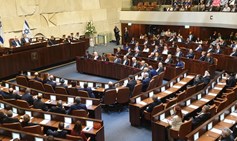
Constructive Motions of No-Confidence: Q&As
Written By: Prof. Gideon Rahat, Dr. Chen Friedberg
IDI experts Prof. Gideon Rahat and Dr. Chen Friedberg explain what a Constructive No-Confidence Vote means for the stability of Israel’s government.
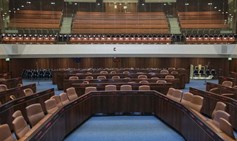
Minority Governments: Why Smaller Is Not Necessarily Worse
Written By: Dr. Assaf Shapira
In the wake of the latest political crisis - can a minority government prevent yet another election?
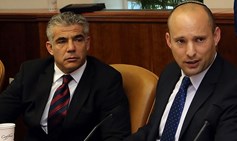
Israel's 36th Government – By the Numbers
Written By: Prof. Ofer Kenig
With the Knesset set to vote on a new government on Sunday, Prof. Ofer Kenig, a research fellow at the Israel Democracy Institute, presents an following analysis of the proposed government.
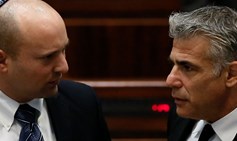
The “Coalition for Change”: Prospects and Challenges
Written By: Prof. Gideon Rahat, Dr. Assaf Shapira
If the “coalition for change” led by Naftali Bennett and Yair Lapid does indeed come into being, it will be a rara avis on the national scene, with the potential to extract us from the political imbroglio we have been mired in for the past two years and more.

Prime Minister from a Small Party? Impossible? Well… There are Examples
Written By: Prof. Ofer Kenig
A government headed by a prime minister who leads small faction in the Knesset - how exceptional is such a scenario and to what extent is it prevalent in parliamentary systems? Prof. Ofer Kenig analyzes examples of parliamentary democracies where the prime minister hails from a small party.

Are the Presidential Elections: A Political Race for a Ceremonial Position?
Written By: Prof. Ofer Kenig
As Israel approaches the election of its 11th president, Prof. Ofer Kenig surveys the results of past presidential elections and argues that although the role of the Israeli president is largely ceremonial, the race for the position is partisan and political.
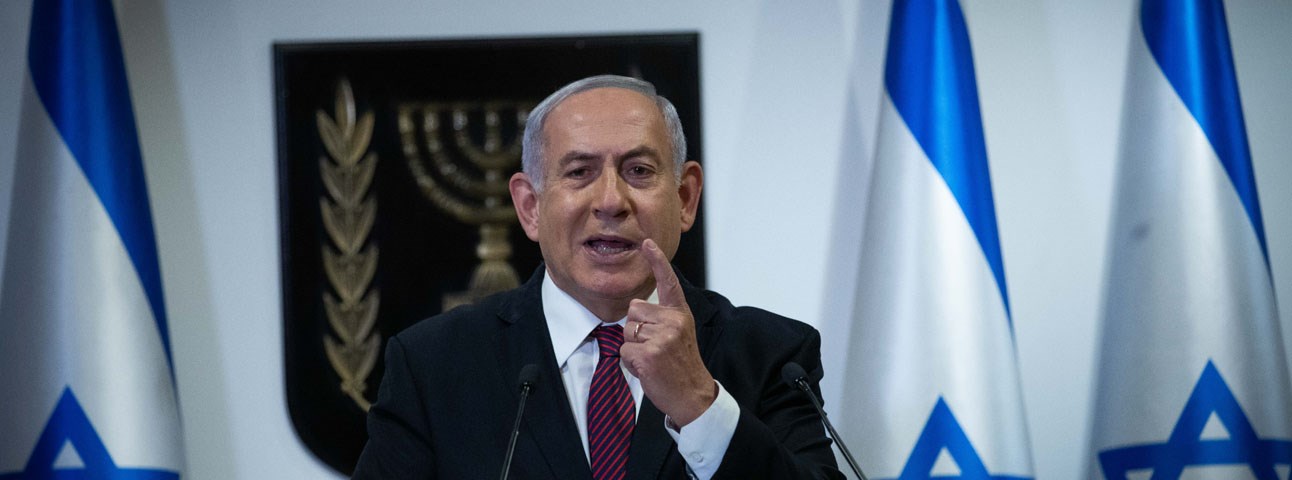
How Netanyahu Learned to Love Israeli Arab Parties
Written By: Yohanan Plesner
The prime minister who once presented Arab political leaders as a threat has legitimized them as potential coalition partners.
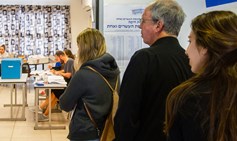
How Can We Escape the Merry-go Round of More and More (and More) Elections?
Written By: Prof. Gideon Rahat
Had Israel adopted a number of reforms proposed in recent decades, today we would have a stable government and a budget—without a fourth election, without a political imbroglio, and without caretaker governments.
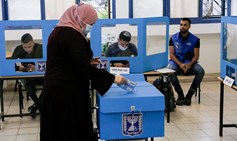
The Arab Vote in the Elections for the 24th Knesset (March 2021)
Written By: Dr. Arik Rudnitzky
The recent elections proved, once again—especially against the backdrop of the Joint List’s meteoric success a year ago—the weakness of the parties’ base on the Arab street.
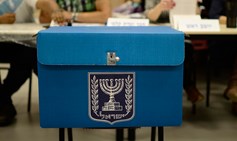
Voting Patterns in Knesset Elections 2021 Vs. 2020
Written By: Prof. Ofer Kenig
In the March 2021 elections, Israel's fourth in two years, voter turnout was down throughout the country. Yet a comparison to the last round of elections in 2020 shows how a more substantial downturn in voting in religious and rightwing strongholds resulted in a significant weakening of Netanyahu's Likud party.

The Return of Direct Elections for Prime Minister?
Written By: Dr. Assaf Shapira, Dr. Amir Fuchs
Prime Minister Netanyahu is promoting legislation that that will institute direct elections for prime minister. How would this proposal work? Will it resolve the political stalemate? Would the Supreme Court rule on its legality? IDI experts weigh in.
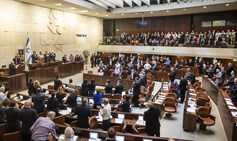
What’s Wrong with Israel’s Political System?
Written By: Prof. Yuval Shany
Four elections in two years failed to produce decisive results - what's wrong with Israel's political system and is there is any way out of its current political stalemate?
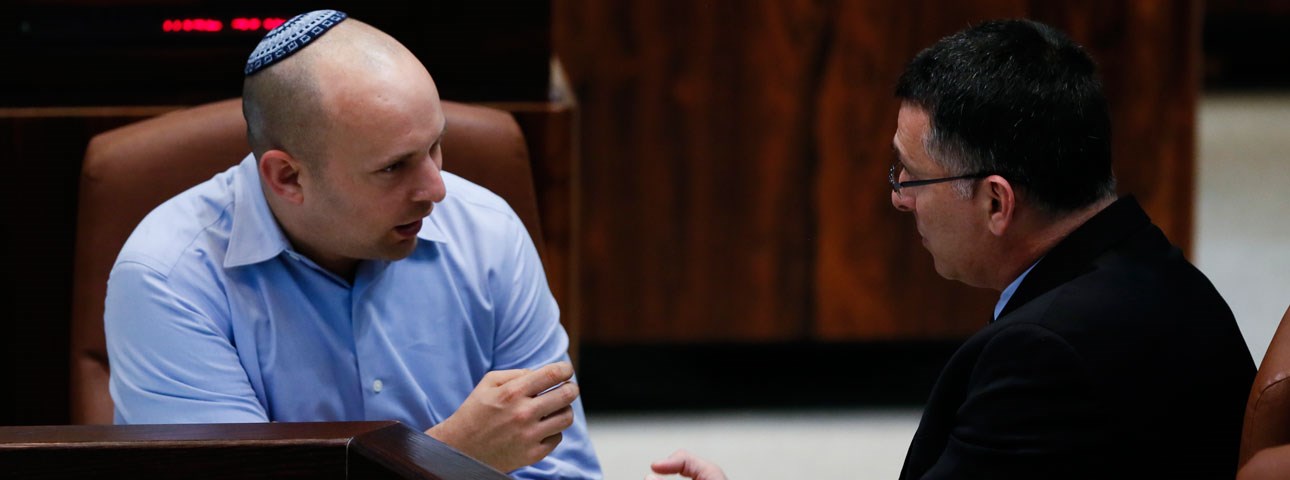
A Minority Government? A Prime Minister from a Small or Medium-Sized Party? You’d Be Surprised…
Written By: Prof. Ofer Kenig
Prof. Ofer Kenig presents examples of parliamentary democracies in which the Prime Minister is from a small party.
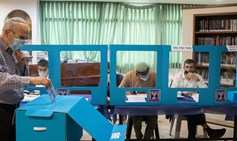
Final Election Results 2021
Written By: Prof. Ofer Kenig
One of the most striking elements to emerge from the preliminary results is that the current Knesset is going to be much more fragmented
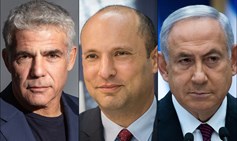
Breaking Israel’s Political Deadlock
Written By: Yohanan Plesner
IDI President Yohanan Plesner and BICOM Director Richard Pater discuss Prime Minister Benjamin Netanyahu's options for forming a government, possible alternative coalitions and what to look out for in Netanyahu’s trial.

The March 2021 Elections: The Fence-Sitters
Written By: Prof. Tamar Hermann
Those who still haven’t made up their mind about who they will vote for in less than a month is much higher than it was before the elections in March 2020 – how will it effect the outcome?

Israel’s Political System is Broken. Here is How to Fix It.
Written By: Yohanan Plesner
Are the fourth national elections in less than two years due to political chaos or Prime Minister Netanyahu’s legal woes?
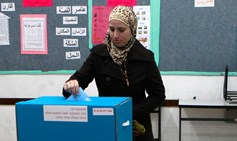
The Arab Vote – Is There Such a Thing?
Written By: Dr. Arik Rudnitzky
Dr Arik Rudnitzky analyzes the changing voting patterns in the Arab community ahead of Israel’s fourth general election in two years.

Israel at the Precipice: Will the March Election Bring an End to Israel’s Political and Economic Crisis?
Written By: Yohanan Plesner , Prof. Karnit Flug, Dr. Jesse Ferris
As Covid-19 continues to take Israeli lives and ravage its economy, seemingly immune to Israel’s impressive vaccination campaign, IDI President Yohanan Plesner and Professor Karnit Flug, Vice President, Research and William Davidson Senior Fellow for Economic Policy joined IDI's VP of Strategy Dr. Jesse Ferris on a JFN webinar to discuss the stakes and possible outcomes of Israel’s fourth election in less than two years.
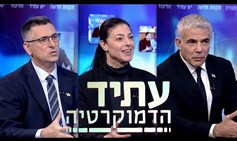
IDI Holds Forum With Party Leaders for First-Time Voters
In a special broadcast ahead of the March election, first-time voters were given the opportunity to pose difficult questions to leaders of the major parties.
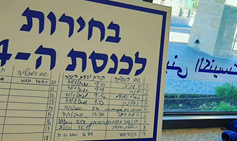
Who's Running? The Final Lists of Parties and Candidates for the 24th Knesset
Written By: Prof. Ofer Kenig
The final list of parties and candidates have been submitted and it appears that at least 20, perhaps even 30, of the 120 MKs elected in 2020 will not serve in the next Knesset.
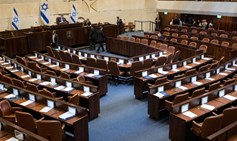
How Many Knesset Members Have Lasted in Politics Since 2009?
Written By: Prof. Ofer Kenig
The data reflects a very high turnover rate in Israel's political system. This has both positive and negative aspects. On the one hand - a robust political system should be refreshed - but it can also be a symptom of a "sick" system
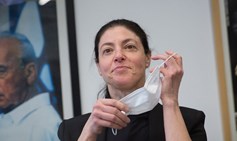
The Labor Party Primary Elections
Written By: Prof. Ofer Kenig
Labor was the only political party to elect its chair and candidates for the Knesset in primary elections consecutively since 1992 – including in the 2021 election. While its membership is dropping, this is consistent with ongoing trends in most Western democracies.

Israel Heads Toward Its Fourth Elections
Written By: Yohanan Plesner
After failing to meet the December 22 deadline for passing a budget, Israel is headed towards a once unfathomable fourth election in less than two years. The results of the last three elections in 2019-2020 did not dispel the political turmoil - we are about to see if the results from the fourth elections in 2021 will be any different.
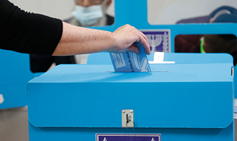
How Often are Elections Held?
Written By: Prof. Ofer Kenig
How often does Israel hold elections? On average every 2.3 years!
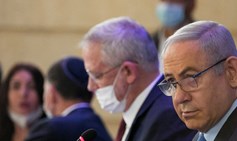
Ireland Finally Has a Government!
Written By: Prof. Ofer Kenig
A tale of two unity governments: The coalition agreement that formed Israel's unity government is all about forcing the parties to live up to the deal. Ireland's is all about policy.
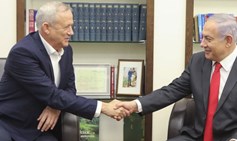
Coalition Agreement – What to Expect Moving Forward
Written By: Yohanan Plesner
IDI President Yohanan Plesner held an online media briefing and Q&A session on the new coalition agreement between the Likud and Blue and White parties.
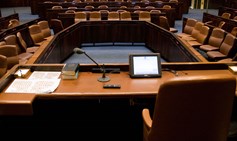
Limit the Number of Ministers and Deputies
In light of the Movement Towards a National Emergency Government: 30 Ministers Would be Excessive in Comparison to other Parliamentary Democracies; The cap on the number of ministers and their deputy minister should remain in place.
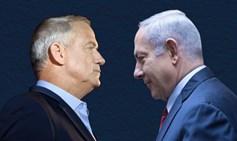
A Unity Government to Deal with the Emergency?
Written By: Dr. Dana Blander, Prof. Ofer Kenig
Will the coronavirus crisis result in an unity government, which can, at least temporarily, resolve Israel's political deadlock? IDI experts explain.

Parliaments Around the World
Written By: Dr. Chen Friedberg, Avital Friedman, Dr. Assaf Shapira, Dr. Shany Mor
As the Knesset struggles to resume its work, IDI took a look at how parliaments around the world are putting into place processes and mechanisms that enable them to operate during the coronavirus pandemic so they can fulfill the vital role they play in democracies.
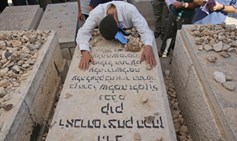
Israel's Third Elections Marks the Defeat of Rabbi Kook’s Dream
Written By: Prof. Yedidia Z. Stern
Let’s imagine a conversation between Rabbi Abraham Isaac Hacohen Kook, religious Zionism’s greatest thinker, and the four Yamina Party leaders.
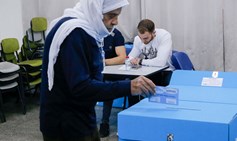
The Arab Israeli Vote in the 23rd Knesset Elections
Written By: Dr. Arik Rudnitzky
The people had their say in these elections. A majority of the Arab Israeli public (65%) turned out to proclaim a resounding vote of confidence in the Joint List
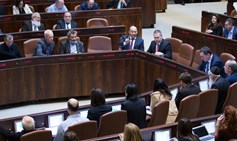
Governments of Experts: Desperate Measures for Desperate Times?
Written By: Prof. Ofer Kenig
The results of this third round of elections would seem to indicate that, once again, no decisive victory has been won, and that the Israeli political system is likely to remain stuck at the same dead end at which it has been stranded for the last year. Could a government of experts resolve the crisis?

Incumbent Minority Governments
Written By: Prof. Ofer Kenig
Although there is no precedent in Israel's history for forming a minority government immediately after an election, minority governments around the world are far from a rarity.
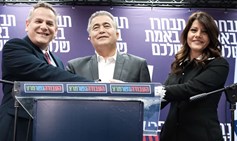
All About Splits
Written By: Dr. Assaf Shapira
How can MKs 'cross the floor' and what sanctions might they face? An explainer by Dr. Assaf Shapira
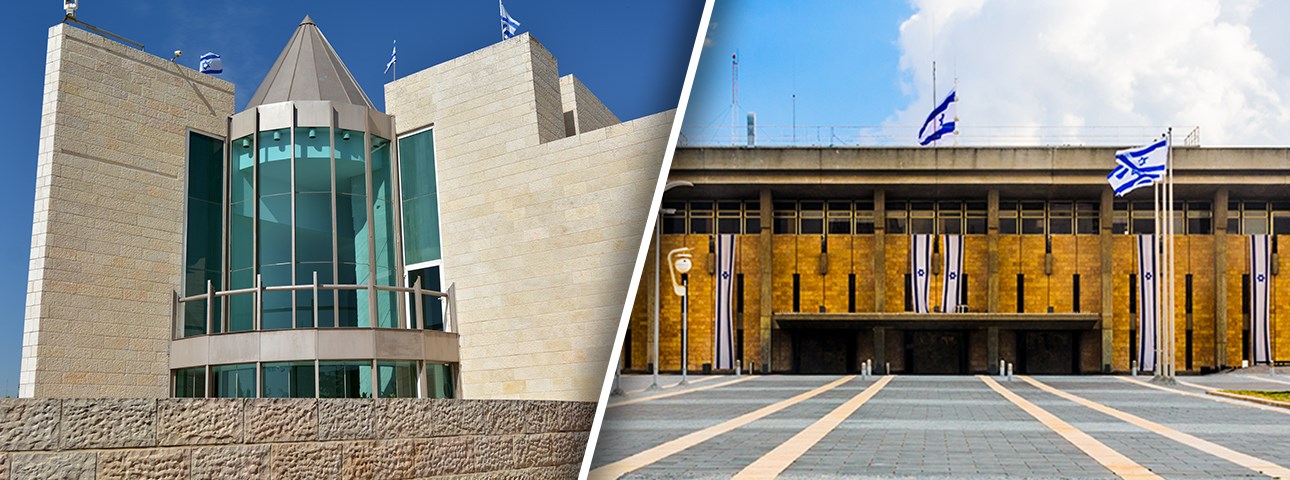
What’s at Stake in This Election?
Written By: Prof. Yedidia Z. Stern
A 3-pronged plan to change the balance of power in government threatens everyone who cares about human rights, regardless of politics

Getting Stay-at-Home Potential Voters to the Polls for Israeli Elections
Written By: Dr. Assaf Shapira, Dr. Ofer Bernstein
Rather than “packaging” voting as a political, civic and moral obligation, we should try instead to get these potential voters to think about the personal benefits to be gained by going to the polls.

Stop the Use by All Parties of Election-Management Software
The Israel Democracy Institute has submitted a professional opinion to the chair of the Central Elections Committee, Justice Neal Hendel, asking the Committee to prohibit the use of election-management software until appropriate regulations for its use are in place.

Third Time's a Charm?
Written By: Yohanan Plesner
With two weeks to go, Yohanan Plesner presents the key issues to look out for in Israel's unprecedented third election and what – if anything – will determine if a stable government will finally be formed.
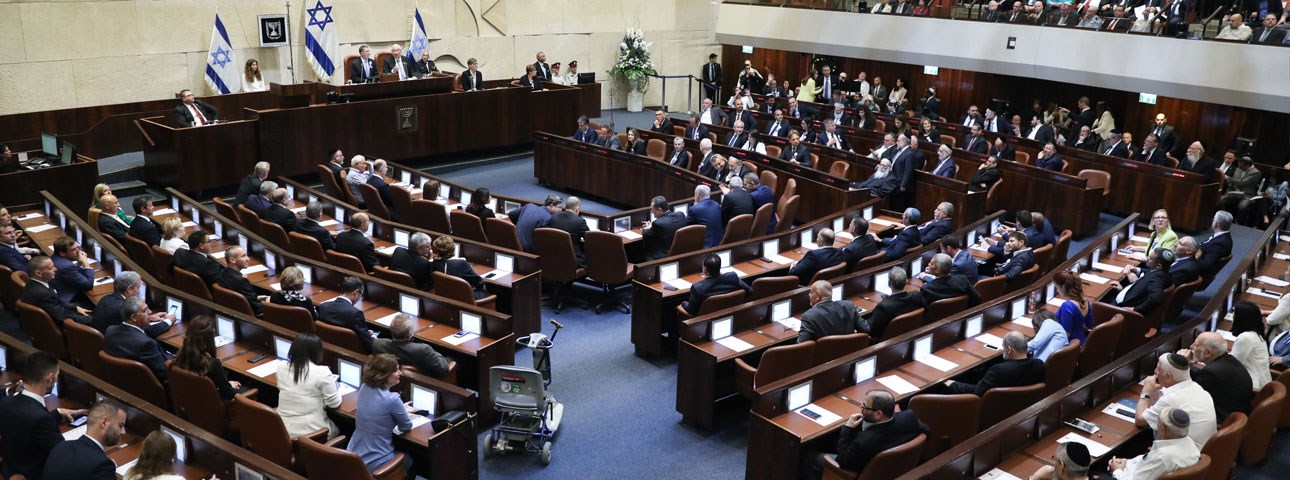
The State of the Highly Personalized Israeli Democracy
Written By: Prof. Gideon Rahat
At this writing, Israel seems to be headed towards its third elections within a year. Israel has been governed for almost a year by a caretaker government, and no one can be sure that the next elections will resolve the stalemate. While this state of affairs may fulfill the dreams of libertarians or anarchists, for most others – it looks more like a nightmare.

Wanted: Fiscally Responsible Political Parties
Written By: Dr. Assaf Shapira
Considering Israel is facing the third national elections in less than a year, isn't it reasonable to expect the political parties, whose campaigns are publicly funded, to act in a fiscally responsible manner?

Where Have the Parties Gone?
Written By: Yohanan Plesner
Political parties no longer fulfill the goals for which they were intended, rather they have become technical structures that are focused on the ranking of the candidates on their Knesset lists.

What Will the 23rd Knesset Look Like?
Written By: Prof. Ofer Kenig
New record low of number of lists; Left-Center shrinks from eight lists in 2013 to three today; women’s’ representation continues to dither – less than 30 women MKs are expected
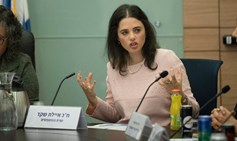
Women Representation in the 23rd Knesset
Written By: Dr. Assaf Shapira
After the party lists have been submitted Dr. Assaf Shapira analyzes expected representation of women in the 23rd Knesset based on the September 2019 elections

On the Knesset's Dissolution and Third Elections
Israel finds itself in yet another unprecedented moment and has officially entered the campaign period for a third national elections in less than 12 months. How can we prevent this from happening again in the future?

Is Third Time a Charm?
Written By: Prof. Ofer Kenig
Israel is gearing up for its third national elections in less than a year - how does this compare to other democracies around the world?
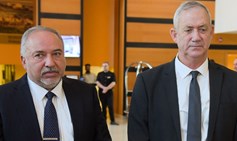
Are we Headed for Another Historic First?
Written By: Prof. Ofer Kenig, Dr. Assaf Shapira
Tomorrow, Gantz's mandate to form a government will end, and we are expected to enter an unparalleled stage in Israel - 21 days, during which a majority of Knesset members, at least 61, are allowed to ask the president to assign the mandate to anyone of the 120 MKs.
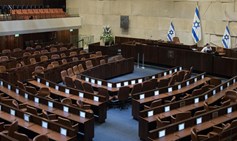
A Minority Government in Israel?
Written By: Dr. Assaf Shapira
The final results of the third election are in and Israel is in very much the same stalemate position as the previous two rounds - is a minority government the solution?
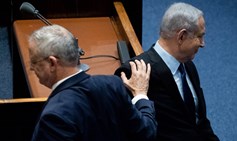
Can a Minority Government End the Deadlock in Israel?
Written By: Dr. Assaf Shapira
Assaf Shapira argues that if the choice is between a minority government and another round of elections, the former is the better option.

Benjamin Netanyahu Fails to Form a Government – What Happens Next?
Written By: Yohanan Plesner
While we cannot know for sure if Benny Gantz will succeed where Benjamin Netanyahu has failed, we can state with certainty that our political system of the past year has been characterized by deadlock, and this is not expected to end in the near future.
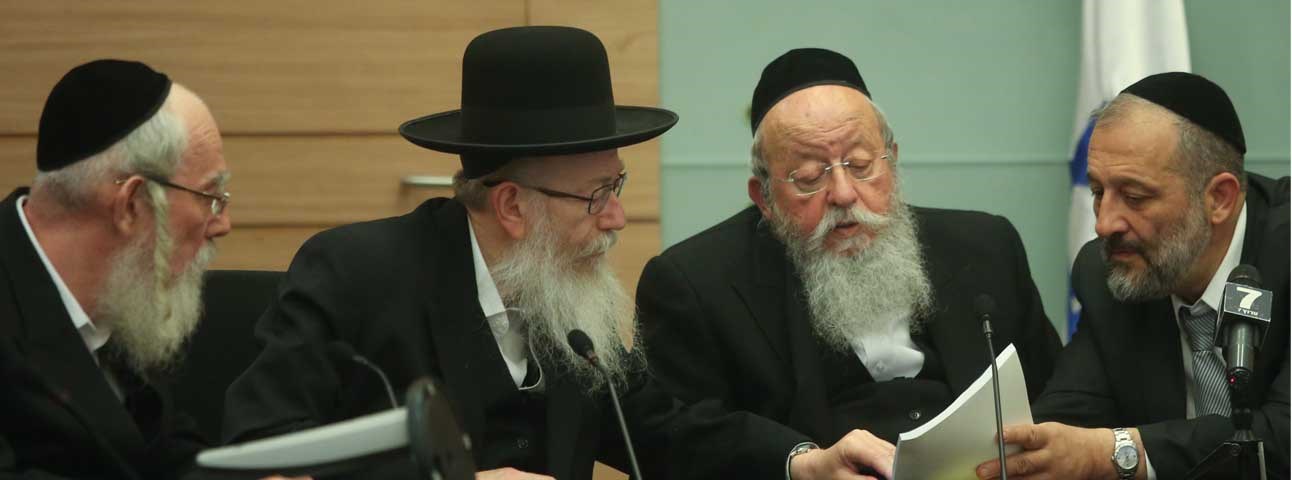
A Pyrrhic Victory
Written By: Dr. Gilad Malach
The results speak for themselves. Shas, headed by Arye Deri, registered a resounding success with traditional voters. But is this a long term victory?
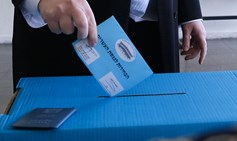
In Praise of Normalcy
Written By: Prof. Yedidia Z. Stern
Despite all the fears, voter turnout was quite respectable (the third-highest rate in the seven elections this century).

Farewell Elections, Hello 35th Government
Written By: Prof. Ofer Kenig
The strangest and most polarizing election in Israel’s history is now over. The people have spoken, and we’re now entering the next stage of the political lifecycle: forming a new government. What are the rules governing this process, and what can be learned from a historical and comparative perspective?
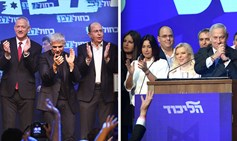
September 2019 Elections - Initial Analysis
Written By: Prof. Ofer Kenig
After an unprecedented second round of elections - the final outcome is still unclear. We’re now entering the next stage of the political lifecycle: coalition negotiations - Dr. Kenig explains what’s next

Democracy: Rule of the People?
Written By: Prof. Yuval Shany
The recent wave of populism forces us to sharpen our understanding of the literal meaning of 'democracy' and 'the rule of the people' as well as the accepted definition of liberal democracy
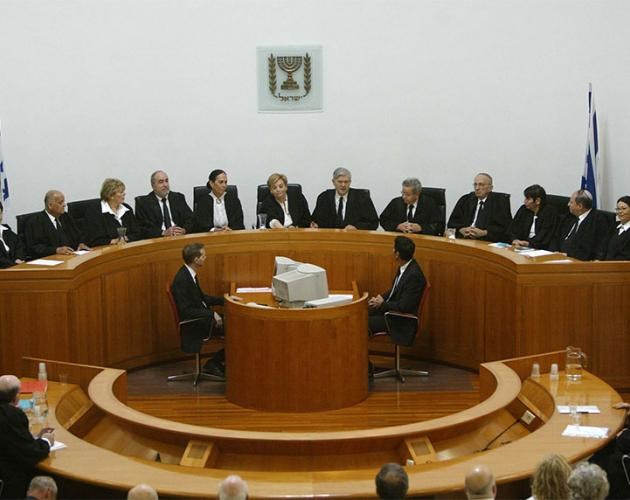
The Knesset and the Court: Is This Israel’s Override Election?
Written By: Yohanan Plesner
"This election will be less about which candidate ends up as prime minister, but rather the real possibility of radical judicial reforms that might soon pass in the Knesset and which would limit the Supreme Court’s ability to perform crucial oversight over the political system."
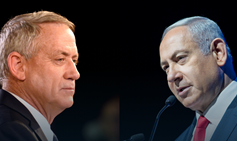
Post-Election Scenarios and the Case for Unity
Written By: Yohanan Plesner
Of the three realistic options, a unity government seems optimal. The other possibilities - a third round of voting or a narrow, right-wing government - carry exorbitant price tags.

Every Cloud has a Silver Lining?
Written By: Dr. Arik Rudnitzky
Arab parties can surge if they shake off the old politics - a significant number of Arabs who stayed home in April will vote if they are persuaded their leaders have integrity
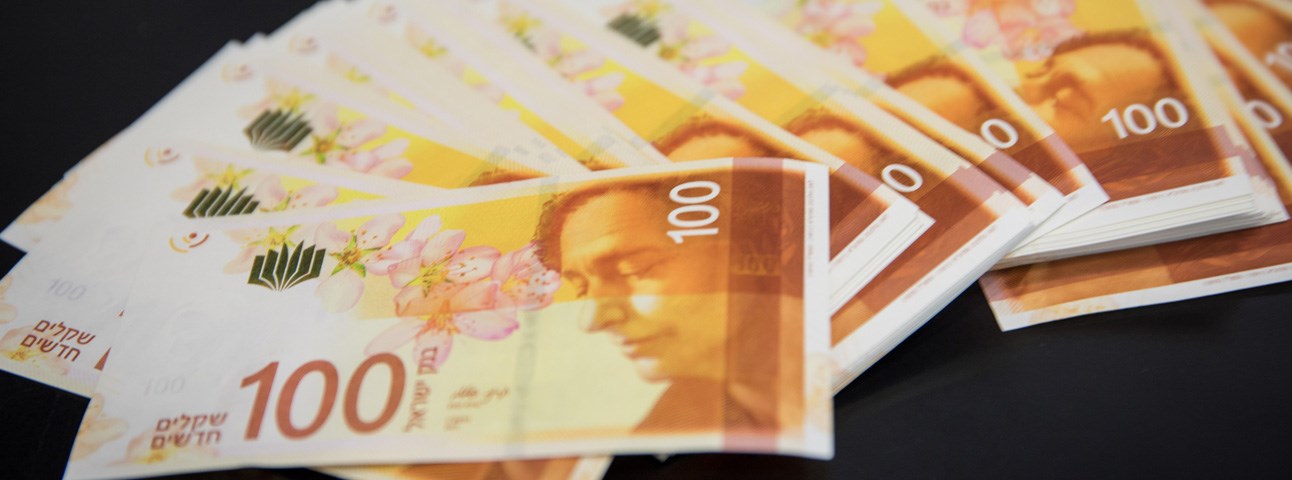
The Absurdity of Campaign Financing in Israel
Written By: Dr. Assaf Shapira
Why should parties be allowed to use state funding for ongoing expenses to cover the debts accrued during political campaigns?
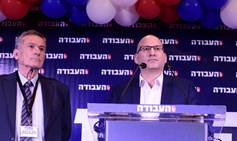
Give Credit to the Most Democratic Party in Israel
Written By: Prof. Gideon Rahat, Prof. Ofer Kenig
Long ridiculed, Labor is one of the few parties that meet stringent standards on campaign finance and transparency
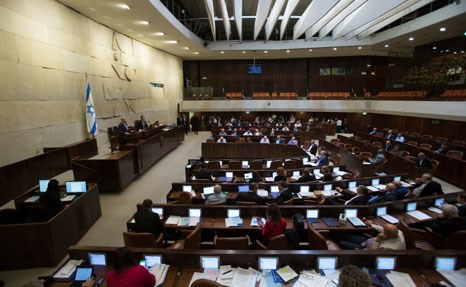
Unity Coalition Governments: Explainer
A unity government (or “grand coalition”) is a special type of coalition with a particularly broad base, including all the major parties represented in the parliament and can have a range of ramifications on the political system. This explainer outlines how its works in Israel and around the world.

For These Do-Over Elections, We are all Smarter
Written By: Prof. Amichai Cohen
Another Election? It Has its Pluses for the Public and for Democracy. Voters got to see how parties behaved after elections, and parties now know the real risk of a hardline negotiation stance.
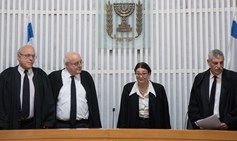
A Test of Reasonableness
Written By: Dr. Amir Fuchs
The bizarre constitutional situation in which we now find ourselves raises a great many legal questions, not all of which have simple answers. Does the law allow the prime minister to fire all the government’s ministers? Can he serve as “the government” by himself?
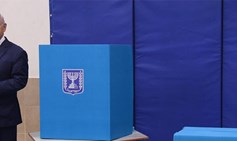
How to End Israel’s Political Impasse
Written By: Yohanan Plesner
Benjamin Netanyahu couldn’t form a government, because the electoral system is dysfunctional. The country needs to enact two simple reforms, or it will face perpetual stalemate.
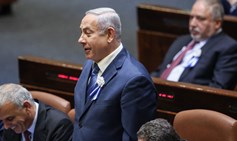
Early Elections
Written By: Yohanan Plesner
First thoughts on early elections with Yohanan Plesner - how did we get here and what to expect next
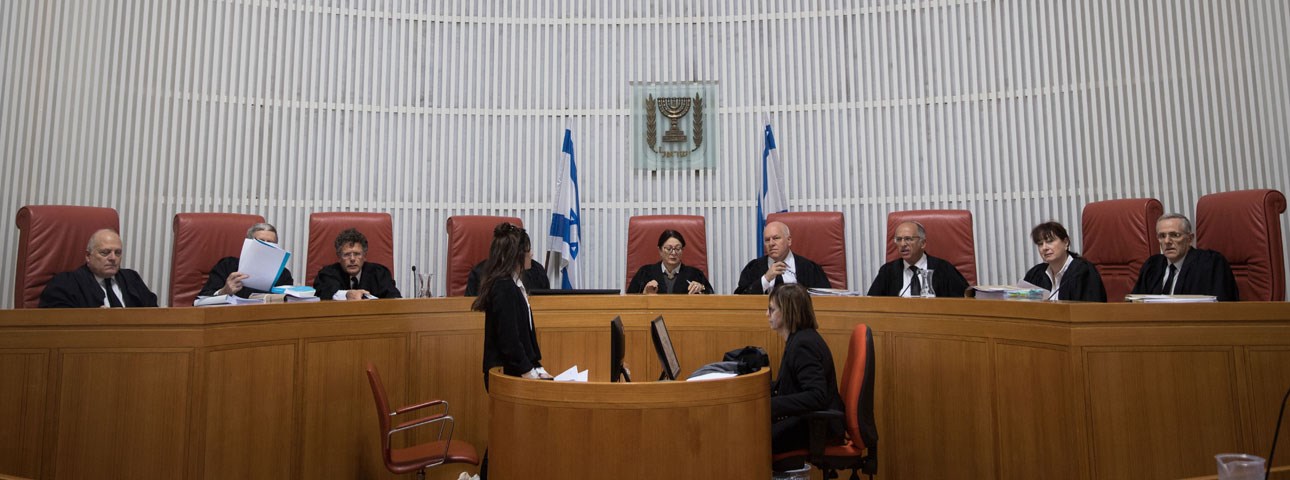
A Needle on the Israeli Compass
Written By: Prof. Yedidia Z. Stern
The conservatives who think the court is moved by a malicious intent to stamp out politics are mistaken. Our High Court of Justice is squeaky clean, and of the highest possible caliber
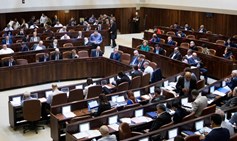
What if Netanyahu Fails to Form a Coalition? Explainer
Written By: Prof. Ofer Kenig
What if Netanyahu fails to form a coalition? Will Israel find itself again holding elections? Although unlikely – Dr. Ofer Kenig explains the possibilities
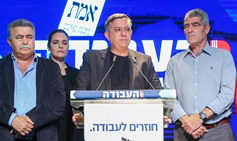
The Liberal-Democratic Camp Will Keep on Losing Elections
Written By: Dr. Shuki Friedman
Change will come only by engaging in an extended struggle over values, and by offering a true Jewish-democratic alternative in which both components are strong and complement one another
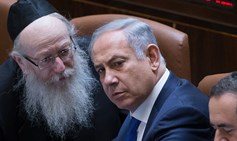
Strengthening the 'Rule of Law' in Coalition Agreements
The Israel Democracy Institute calls on Parties to Demand Strengthening of 'Rule of Law' and 'Separation of Power's in Coalition Agreements.

Arab Votes for the 21st Knesset
Written By: Dr. Arik Rudnitzky
Arab turnout for the vote was the lowest in a decade – only 49% participated in the elections for the 21st Knesset – Arik Rudnitzky summarizes
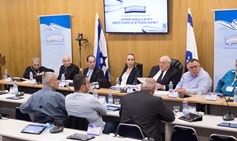
Knesset Central Elections Committee is in Need of Reform
Written By: Dr. Dana Blander
A trustworthy and independent Central Elections Committee is essential for the holding of truly democratic elections – that is why a reform is overdue
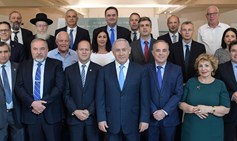
Reduce the Number of Ministers
Written By: Prof. Ofer Kenig
As talks begin toward the formation of a new government – it is an opportunity to call on the Prime Minister to keep the number of Ministers low
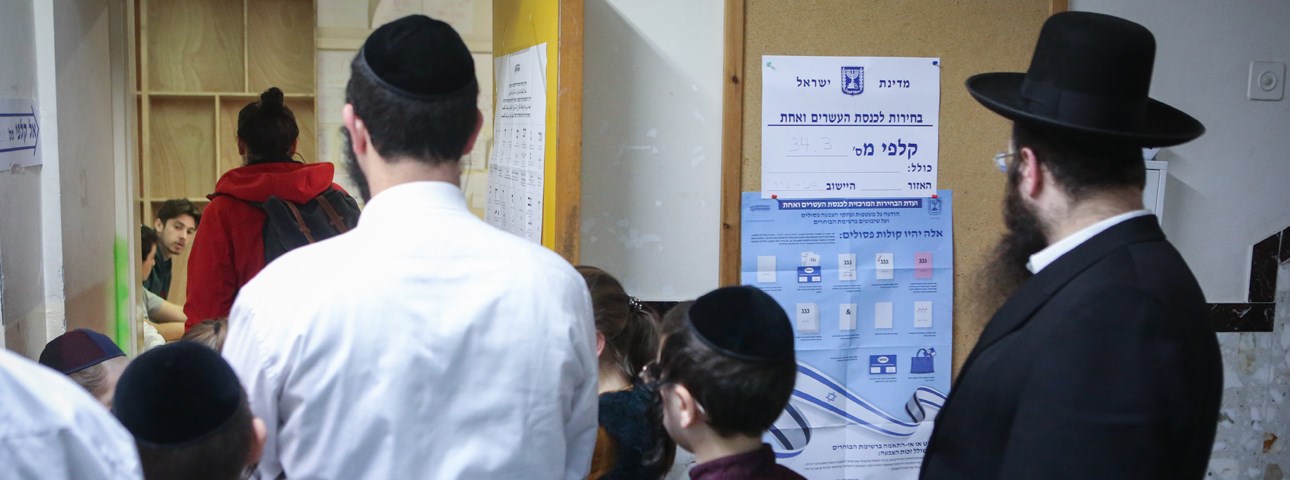
Ultra-Orthodox Streamed to the Polls
Written By: Dr. Gilad Malach
Among the many surprises of last week’s election was the impressive performance by the ultra-Orthodox parties – how can we explain this dizzying success?
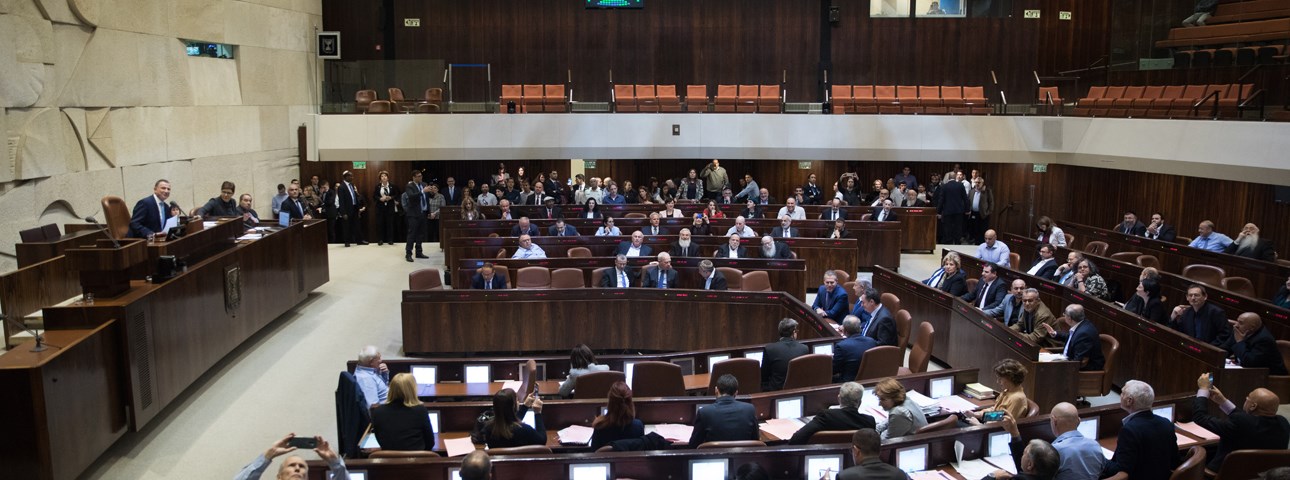
Farewell Elections, Hello Government
Written By: Prof. Ofer Kenig
After an exhausting and polarizing election campaign, the people have spoken, and we’re now entering the next stage of the political lifecycle: forming a new government - Dr. Kenig explains what’s next
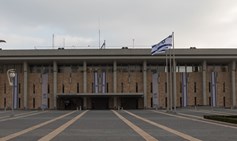
Electoral Reform: Hope for Tomorrow
Written By: Yohanan Plesner
The good news is that according to surveys that we published at the Israel Democracy Institute, there is widespread consensus among Israelis on many of the most significant issues our country faces

Celebrating Voter’s Day
Written By: Prof. Yedidia Z. Stern
Voter’s Day, between vicious campaigning and brutal coalition cobbling, lets us appreciate the great equalizer of 'one person, one vote'
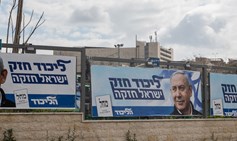
The Personalization of Politics in Israel
Written By: Prof. Gideon Rahat
In Israel, people vote for a party rather than a candidate. But over the years, there has been a shift towards the personalization of politics. Why have our elections become a competition among single personalities rather than a confrontation among different parties and ideas? Prof. Gideon Rahat offers his take
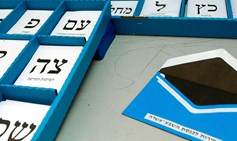
Israel Should Adopt Open-Primaries System on Election Day
The Israel Democracy Institute, the Kohelet Forum, Israel 2050, The National Union of Israeli Students, and the Israel Leadership Forum have joined together to call for the implementation of a "primaries on Election Day" system in Israel. This approach is often referred to among academics as the "semi-open ballot"
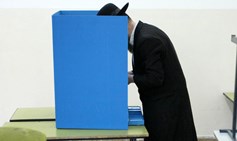
What Do Haredi Voters Really Want?
Written By: Dr. Gilad Malach
Gilad Malach of the Israel Democracy Institute gives the latest electoral trends among Israel’s insular ultra-orthodox Jewish community. Why is a small community so divided, and why are growing numbers of ultra-Orthodox voters leaving the Haredi parties altogether?

Social Media’s Impact on the Elections
Written By: Dr. Tehilla Shwartz Altshuler
How should media outlets in Israel prepare themselves for “fake news” campaigns and how has the digital sphere become the “Wild West?” Tipping Point hosts Dr. Tehilla Shwartz Altshuler to discuss the extent Israeli elections are influenced by digital campaigns
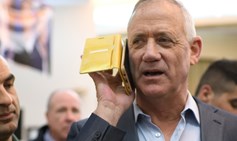
Hacking Gantz’s Phone
Written By: Dr. Tehilla Shwartz Altshuler
If we want to preserve a healthy democratic process, and especially public trust that it is possible to hold fair elections in this country, democracy must stand up and protect itself

Old Fashioned Election Propaganda
Written By: Dr. Tehilla Shwartz Altshuler
When we struggle during election campaigns to enforce a rule against use of private data and building profiles of users in order to target them with personalized messages, we are essentially fighting for the rights of the community of older voters

The Hackers Are Coming, the Hackers Are Coming
Written By: Adv. Eli Bahar, Adv. Ron Shamir
Iran has apparently hacked the cellphone of Benny Gantz, Prime Minister Netanyahu's main challenger in the April 9 elections. But despite serving as a tool in Likud's campaign, it has not derailed the democratic process in any significant way. In this conversation Eli Bahar, former legal adviser to Shin Bet and IDI fellow, and Ron Shamir, the former head of the technology division at Shin Bet and a fellow at the Hebrew University's Federman Cybersecurity Center, discuss with Tel Aviv Review's Gilad Halpern the danger posed by potential cyber-attacks on Israeli democracy

Alliance of Interests
Written By: Dr. Assaf Shapira
The alliances and fragmentation has far-reaching consequences for the work of the Knesset and the government
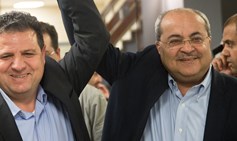
Counting the Votes
Written By: Dr. Arik Rudnitzky
Will Arab elected officials adopt a pragmatic and matter-of-fact approach and overcome the obstacles standing in the way of establishing political partnerships among them, in order to encourage Arab voters to go to the polls on Election Day?
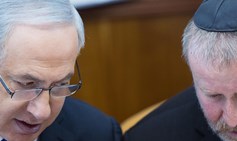
Indictment Timeline
Written By: Dr. Guy Lurie
As the Israeli attorney-general is expected to announce his decision regarding the possible indictment of Prime Minister Netanyahu on corruption charges, Tipping Point hosts two leading experts for a discussion on the legal and political ramifications. Dr. Guy Lurie (Israel Democracy Institute) and Dr. Emmanuel Navon (Kohelet Policy Forum) try to make sense of what’s about to come

5 Rules on How to Act Smart and Protect Yourself in the Digital Age
Written By: Dr. Tehilla Shwartz Altshuler
It is difficult to identify them - they are hidden, disguised, sophisticated and resonate to us what our immediate surroundings think. During the election campaign they are at their peak - bots, fake accounts, unnamed identifiers - all trying to influence public opinion. We bring to you 5 tips for managing smart online presence

Political Parties Merge: Israel Reverts to Two-Blocs
Written By: Yohanan Plesner
Following the merger between Yesh Atid and the Israel Resilience Party, April’s elections will feature real competition between two major blocs. The next step in minimizing fragmentation in the Israeli political system is reforming the method by which a government is formed. The head of the largest party should automatically be appointed to form the next government.
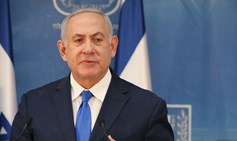
Netanyahu – Why is There Such A Fierce Debate?
Written By: Yair Sheleg
Israel has had 12 prime ministers in its 70 years, but none provoked such fierce emotional debates as Netanyahu.
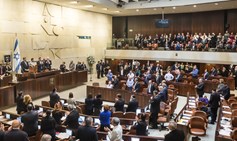
It’s time to change how we select Knesset candidates
Written By: Prof. Gideon Rahat
Primaries often don't reflect the true will of actual party supporters -- voters should weigh in on Election Day
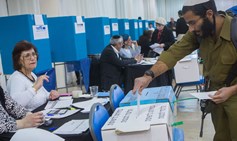
How do Primaries Work and How Could they be Improved?
Written By: Yohanan Plesner
The third in a series of articles and videos prepared by the Israel Democracy Institute in the run-up to April 9, explaining and critiquing what goes on during an election period
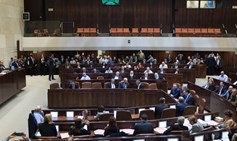
Time to Vote for a Bloc!
Written By: Prof. Yedidia Z. Stern
“The great task before all — right and left, religious and secular, Jew and Arab — is to break down the veto power that the extremists among us wield over the center on various fronts”

Why Are There so Many Political Parties, and Why Does This Fragmentation Obstruct Governance?
Written By: Prof. Gideon Rahat
“The current system grants small parties disproportionate power, leads to excessive preoccupation with coalition management, does not provide strong incentives for creating an effective opposition, and leads to the allocation of over-sized budgets to sectoral interests. We need to create a system of incentives which will solidify the political system into two main blocs.” says Prof. Gideon Rahat
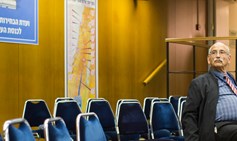
Has The Era of the Primaries Come to an End?
Written By: Prof. Ofer Kenig
Democracy is at risk when the responsiveness between the public and its elected representatives is severed. Without accountability, political extremism and populism will become more prevalent.

Primary Concern
Written By: Prof. Gideon Rahat
As Israeli political parties begin to formulate their lists of candidates for the upcoming election, Tipping Point hosts Prof. Gideon Rahat, (Israel Democracy Institute), and Dr. Emmanuel Navon (Kohelet Policy Forum) for a conversation on the pros and cons of the primary system.
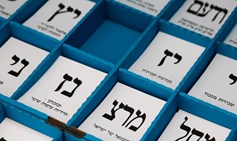
Party-Hopping
Written By: Yohanan Plesner
What will secure victory in the 2019 elections: inter-party alliances, or splits? Yohanan Plesner discusses with The Israel Project, Israel’s multi-party system, processes of fragmentation and their detrimental effects on effective governance
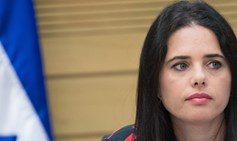
How Many Women Have Served in the Israeli Cabinet?
Written By: Prof. Ofer Kenig
The steady increase in the percentage of women in Israel's parliament has not been accompanied by a concomitant rise in their cabinet representation. In this article, IDI researcher Dr. Ofer Kenig argues that the new government that will be formed following the 2019 elections provides Israel with a golden opportunity to rectify this situation.
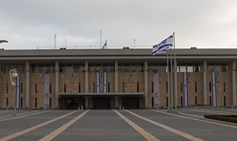
Multi-Party System in Israeli Politics
Written By: Prof. Gideon Rahat
How will yesterday's announcement impact the elections? Will Bennet and Shaked take votes from the right and will their gamble pay off? Listen to Prof. Gideon Rahat talk to The Israel Project on the fragmentation of the Israeli political system.
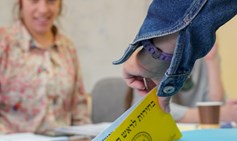
Local Government and Local Elections: Time to Move Away from Centralized Thinking
Written By: Prof. Gideon Rahat
Israel’s system of local elections has been in place since the 1970s - but is it optimal? Prof. Gideon Rahat proposes reform to enhance the compatibility of the system to the characteristics and needs of different localities.
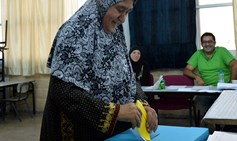
Why Local Elections Matter
Written By: Yohanan Plesner
"While Israeli national politics get most of the coverage, it is the local level that in many cases has the greatest impact on Israeli lives." Read Yohanan Plesner's op-ed on the upcoming municipal elections and why electoral reform is required, both on the local and national level.
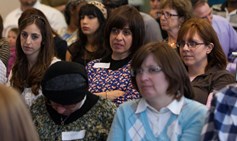
Integrating Women into Politics: Another Solution
Written By: Prof. Ofer Kenig, Dr. Chen Friedberg
The absolute exclusion of women from ultra-Orthodox parties keeps their specific interests from being addressed effectively in the public sphere.
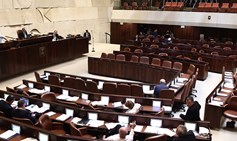
The Knesset at Age 69: Still Struggling for the Public's Trust
Written By: Lahav Harkov
While members of Knesset represent Israel's diverse society, they're still seen as self-interested and ineffectual by the public.
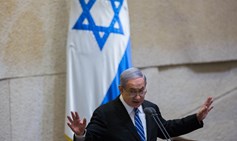
Jerusalem Report: Welcome to 21st Century Politics
Written By: Elli Wohlgelernter
Poorly funded and under threat from personalization and social media, political parties are in decline.

Turning Back the Tide
Written By: Yohanan Plesner
To tackle the crisis of democracy we must restore the public's faith in its governing institutions.

Status of Women in Israeli Politics: The Good, The Bad and The Road to Full Equality
Written By: Prof. Ofer Kenig
The impressive increase of women's representation in the Knesset has not translated into similar strides in other political spheres and senior executive positions.

The Future of Israel’s Political Parties is on Facebook
Written By: Yohanan Plesner
Harnessing the power of readily available technological tools to promote political engagement and revitalize intra-party democratic practices is essential for strengthening party institutions and restoring the public’s faith in government.

Gotta Have Faith: The Knesset's Top Priority for 2017
Written By: Yohanan Plesner
The Knesset’s top priority for 2017 should be to restore the Israeli public’s belief in its political institutions.

America: Land of Endless Voting Opportunities?
Written By: Prof. Ofer Kenig
Dr. Ofer Kenig discusses the multiple ways in which the United States has facilitated the voting process in order to improve voter turnout, and suggests that Israel adopt a number of these innovations. This op-ed originally appeared in the Jerusalem Post.
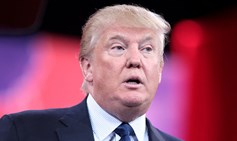
The Trump Phenomenon: Israeli Politics in the 'Age of Me'
Written By: Prof. Gideon Rahat
Love him or hate him, Donald Trump’s once unthinkable ascension became a reality earlier this month, following a largely drama-free roll call vote on the Republican National Convention floor. Trump is a prime example of a candidate whose vision and ideas are not a direct reflection of his party's values and policies, and who, in many ways, battled his way to the top of the party. His nomination is just one example of a current trend toward political personalization, a process in which the influence of individual leaders in the political process has increased, as the centrality of the political group declines.

Are Open Primaries the Answer?
Written By: Prof. Ofer Kenig
The volatile Israeli party system, together with several recent political developments, lately brought the idea of holding open leadership primaries to Israel. However, when considering the adoption of open primaries, one must also take into account their potential challenges and dangers.

Expand Israeli Absentee Voting Rights
Written By: Prof. Ofer Kenig
In this op-ed, which first appeared on the Times of Israel, IDI's Ofer Kenig argues that it is time to cautiously expand the right of absentee voting to more Israelis.
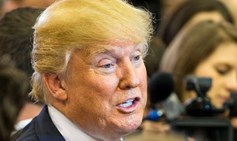
What Just Happened? The 2016 U.S. Elections
Written By: Prof. Ofer Kenig
On Monday, February 1, 2016, the long and complex process in which the two major American parties choose their candidates for president began in Iowa. One of those two candidates will be the 45th President of the United States. What exactly are the presidential primaries? What makes them so long and complicated? What is their timetable and who, for now, are the main candidates?

Campaign Financing in Israel
Written By: Dr. Assaf Shapira
A discussion of the principal issues pertaining to campaign financing in Israel, written before the Knesset elections of 2015.
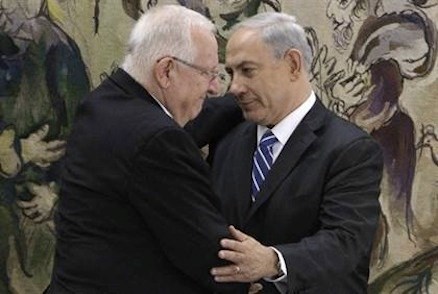
The 2015 Elections and Israeli Governance
Written By: Yohanan Plesner
In a Jerusalem Post op-ed, Yohanan Plesner notes that the 2015 Knesset election demonstrates that structural changes matter, and argues that further stability can be fostered by automatically making the head of the largest party prime minister.

Flash in the Pan Parties in Israel
Written By: Dr. Assaf Shapira
"Flash in the pan" parties suddenly spring up, run for Knesset with varying degrees of success, and disappear from the political map soon after. This article discusses this phenomenon in Israel in the past and in the context of the 2015 elections.

Who Doesn’t Vote in the Israeli Knesset Elections?
Written By: Ella Heller
What has contributed to the decline in voter turnout in Israel? This article explores possible causes and presents a profile of the non-voters in the 2013 Knesset elections. The findings that it reports raise concerns about the value of equality in political participation in Israel.
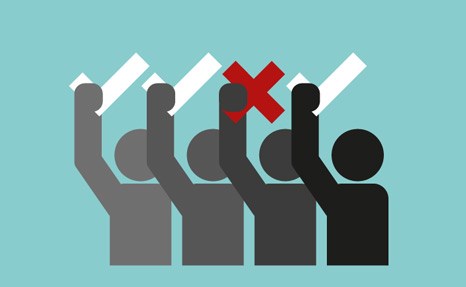
The Intra-Party Democracy Index 2015
Written By: Prof. Gideon Rahat, Dr. Assaf Shapira
The findings of the Party Democracy Index, a tool designed to evaluate the level of democracy within political parties, which was designed by IDI's political reform research team. The findings have been released in advance of the 2015 Knesset elections.

The Elephant in the Room: Relations between Religion and State in Israel
Written By: Prof. Yedidia Z. Stern
Prof. Yedidia Stern urges Israel's leaders to stop tiptoeing around the core issues of religion and state in the Knesset election campaign, and to take a clear position on the matter.
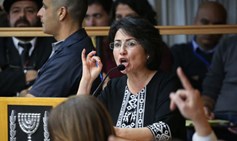
Disqualifying Zoabi: Bad for Security and Bad for Democracy
Written By: Admiral (Res.) Amichay (Ami) Ayalon
As the Central Elections Committee begins to debate disqualifying MK Hanin Zoabi and others from running for Knesset, IDI Senior Fellow Ami Ayalon writes that as distasteful as some of her words may be, banning Zoabi from running would be a victory for Israel's detractors.

Israel's Central Elections Committee: Political Cabal or Independent Agency?
Written By: Dr. Dana Blander
IDI Researcher Dr. Dana Blander discusses the role of Israel's Central Election Committee and asserts that change is needed in its structure, composition, and working methods.

The Electoral Threshold, Wasted Votes, and Proportionality
Written By: Prof. Ofer Kenig
In the upcoming elections, the electoral threshold will be 3.25%, a big leap from the last elections. Will this higher hurdle deter voters from supporting small parties? Will it reduce the share of wasted votes? What impact will it have on the proportional nature of the electoral system?

23 Knesset Seats is Not a Victory
Written By: Yehoshua Oz
In an op-ed in the Jerusalem Post, Yehoshua Oz, IDI's Director of International Communications, argues that pundits eager to crown a victor in the 2015 elections have lost sight of the fact that winning one-fifth of the Knesset seats is no victory.
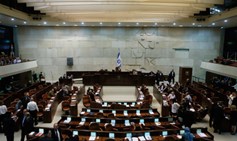
How to Prevent the Recurrence of Early Knesset Elections
Written By: Yohanan Plesner
IDI President Yohanan Plesner recommends a change of approach and some practical steps for changing the reality in which the Israeli public repeatedly goes to the polls to elect a new Knesset before the previous Knesset has finished its term.

The Firing of Ministers in Israel: A Historical Overview
Written By: Prof. Ofer Kenig
The demise of the 19th Knesset was hastened by Prime Minister Benjamin Netanyahu's firing of Finance Minister Yair Lapid and Justice Minister Tzipi Livni. In the article below, IDI researcher Dr. Ofer Kenig discusses the various grounds for firing ministers in the past and how the current case fits into Israeli political practice.

Democracy: The Key Election Issue
Written By: Prof. Mordechai Kremnitzer
In an op-ed in Maariv, IDI Vice President Prof. Mordechai Kremnitzer calls for an election campaign that focuses not only on foreign policy and Israel's social gap, but on the nature of Israeli identity and the value of Israeli democracy itself.
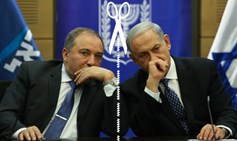
The Yisrael Beiteinu–Likud Split: Background and Consequences
Written By: Dr. Assaf Shapira
Following the announcement of the dissolution of the partnership between Yisrael Beiteinu and the Likud, IDI researcher Assaf Shapira explores the implications of Knesset faction splits.

The Presidential Elections: The Rules of the Game
Written By: Prof. Ofer Kenig
Who elects the president? What are the candidacy requirements? What majority is needed to win the election and how is it obtained? Dr. Ofer Kenig explains some of the basics.
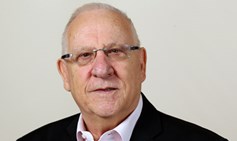
The Presidency: The “Additional Soul” of Israeli Democracy
Written By: Reuven Rivlin
Former Speaker of the Knesset MK Reuven (Ruby) Rivlin shares his views on the importance of the institution of the Israeli presidency, as part of an exclusive IDI series of articles by the presidential candidates of 2014.
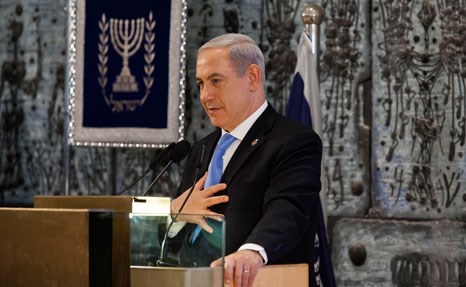
Abolish the Presidency? Certainly Not This Way
Written By: Prof. Ofer Kenig
Dr. Ofer Kenig responds to the initiative to abolish the presidency and emphasizes that such decisions require due consideration and cannot be taken as part of a capricious move that tramples on the democratic rules of the game.

The Leading Candidate for President: "I Don't Know"
Written By: Mr. Chanan Cohen
Two months before the elections for president of Israel, who does the Israeli public see as the most suitable candidate for the job? Find out in this mini-survey from IDI's Guttman Center.
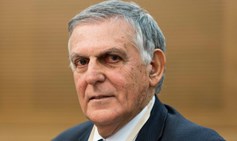
The Presidency in Israel as a Unique Challenge
Written By: Dan Shechtman
An article by Nobel Prize laureate Prof. Dan Shechtman, which was written as part of an IDI project in which the candidates for President of Israel share their views on the presidency and discuss what they would bring to the job.
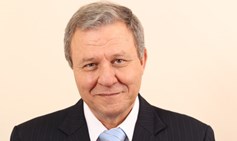
A Socially-Oriented President
Written By: Meir Sheetrit
MK Meir Sheetrit presents his views on the institution of the Israeli president and describes what he would bring to the job, in the first of a series of articles by the presidential candidates of 2014.
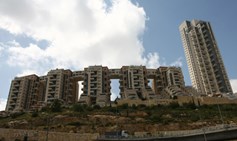
The Struggle against Government Corruption
Written By: Prof. Mordechai Kremnitzer
In an op-ed in <em>Haaretz</em>, Prof. Mordechai Kremnitzer discusses government corruption in Israel and the implications of the Holyland verdict for deterring such corruption in the future.

Nothing is Known Yet: Public Opinion on the Israeli Presidential Race
Written By: Mr. Chanan Cohen
Although the presidential race is heating up, the public does not seem to be particularly interested in it. What do Israeli citizens know about the race? Who is their candidate of choice? Find out in this mini-survey by the Guttman Center for Surveys.
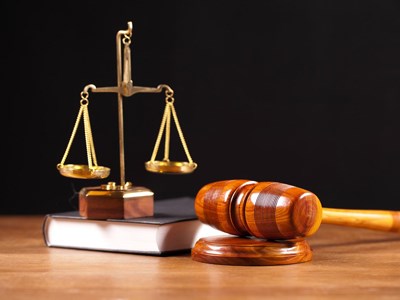
Only a Constitution will Ensure Good Governance in Israel
Written By: Dr. Amir Fuchs
IDI researcher Attorney Amir Fuchs asserts that the only way for Israel to ensure good governance is by adopting a constitution.
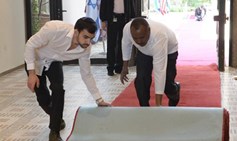
The Presidential Elections: A Political Race for a Ceremonial Position?
Written By: Prof. Ofer Kenig
As Israel approaches the election of its 10th president, Dr. Ofer Kenig surveys the results of past presidential elections and asserts that although the role of the Israeli president is largely ceremonial, the race for the position is partisan and political.
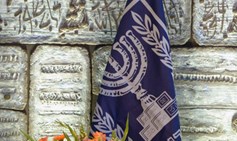
The Israeli Presidency: Unnecessary Institution or Vital Symbol?
Written By: Dr. Dana Blander
As the 2014 presidential election draws near, once again there have been calls to do away with the institution of the presidency. Is the President of Israel an unnecessary position or a vital symbol? IDI researcher Dr. Dana Blander analyzes the two sides of this question.
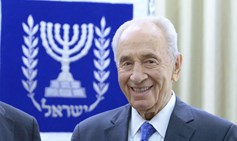
Israeli Public Opinion on the President and the Presidential Elections
Written By: Ella Heller
As the elections for the tenth President of Israel near, IDI researcher Ella Heller of the Guttman Center for Surveys presents an analysis of Israeli public opinion regarding the desired professional background for the next president of Israel, and how the elections should be conducted.

The Electoral Threshold: Why the Rush?
Written By: Prof. Ofer Kenig
In an op-ed in the Jerusalem Post, Dr. Ofer Kenig warns that while there is nothing wrong with a moderate increase in Israel's electoral threshold, increasing it from 2% to 3.25% in a single step is problematic.

Who Needs a President Anyway?
Written By: Prof. Ofer Kenig
In an op-ed in Makor Rishon, Dr. Ofer Kenig responds to calls to eliminate the institution of the presidency, and explains the value of the presidency in Israel and other parliamentary democracies.

Remembering Ariel Sharon (1928–2014)
Written By: Prof. Ofer Kenig
Dr. Ofer Kenig presents some of the milestones in the career of Ariel Sharon, the 11th Prime Minister of the State of Israel.

The Labor Primaries: Will Shelly Yachimovich Break the Losing Streak?
Written By: Prof. Ofer Kenig
Will Shelly Yachimovich manage to succeed where others have failed and maintain her position as chair of the Labor Party for a second term? Dr. Ofer Kenig shares insights on the upcoming primaries for the party leadership.
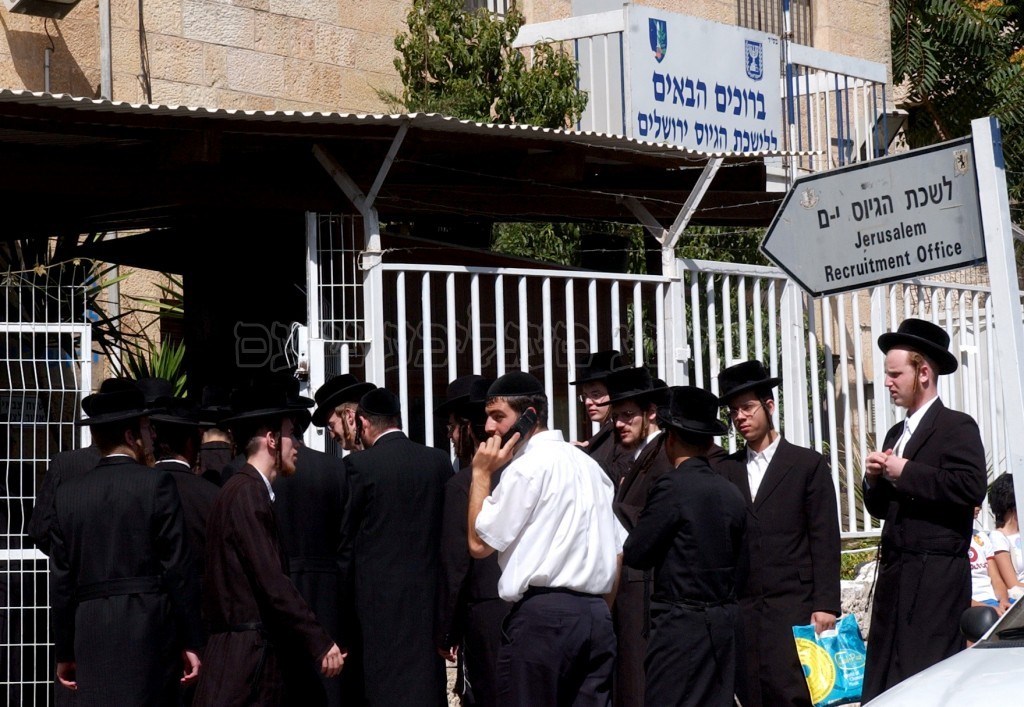
Sir Isaac Newton and the New Haredim
Written By: Prof. Yedidia Z. Stern
Prof. Yedidia Stern shares thoughts on the connection between failure of the ultra-Orthodox "Tov" party in the local elections, the Haredi draft bill being debated by the Shaked Committee, and Newton's laws of motion.

The Israeli Municipal Elections 2013: Some Preliminary Findings
Written By: Nir Atmor, Dr. Dana Blander, Dr. Assaf Shapira
Dr. Nir Atmor, Dr. Dana Blander, and Assaf Shapira share some preliminary findings on voter turnout and women's representation in the Israeli municipal elections of 2013.

The Israeli Democracy Index: A Periodic Check-Up
Written By: Prof. Tamar Hermann
Prof. Tamar Hermann, head of IDI's Guttman Center for Surveys, discusses the findings of the 2013 Israeli Democracy Index, which was submitted to President Shimon Peres on October 6, 2013.

A Professional Assessment of the Governance Bills
Written By: Prof. Gideon Rahat
A professional assessment of proposed changes to Basic Law: The Government and the Election Bill, which was submitted by Prof. Gideon Rahat to MK David Rotem, Chairman of the Knesset Constitution, Law and Justice Committee.
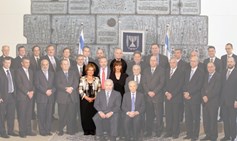
Time for More Women in the Israeli Cabinet
Written By: Prof. Ofer Kenig
IDI Researcher Dr. Ofer Kenig surveys the percentage of women in the Israeli cabinet since the founding of the State and calls for a change for the better.
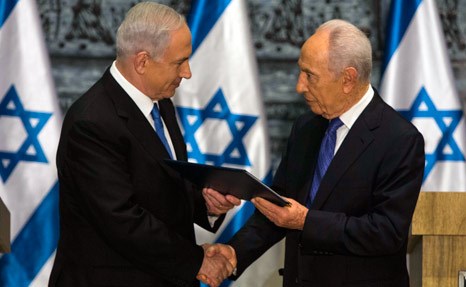
Coalition Building in Israel: A Guide for the Perplexed
Written By: Prof. Ofer Kenig
In an article specially written for the IDI website, Dr. Ofer Kenig explains the basic principles of the process of coalition building, sharing facts, figures, and comparative data.

A Coalition of Hope
Written By: Prof. Yedidia Z. Stern
Following the elections of 2013, IDI Vice President Prof. Yedidia Z. Stern hails the incoming Knesset as a unique opportunity to change the nature of the State of Israel so that it is both more Jewish and more democratic at the same time.
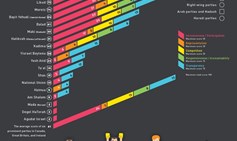
The Party Democracy Index 2013
Written By: Prof. Gideon Rahat, Dr. Assaf Shapira, Michael Philippov
The findings of the Party Democracy Index, a new tool designed to evaluate the level of democracy within political parties, which was designed by IDI's political reform research team and released in advance of the 2013 Knesset elections.

Brushing Off the Dust
Written By: Prof. Ofer Kenig, Nir Atmor
In an article written before the elections for the 19th Knesset, IDI researchers Ofer Kenig and Nir Atmor focus on five elements of Israel’s political system that they believe are in dire need of change.
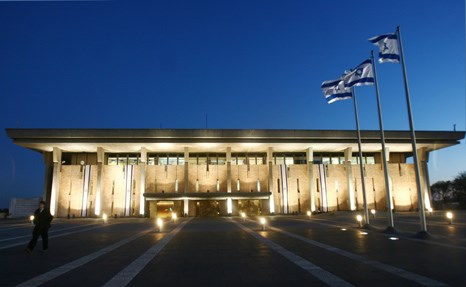
The 2015 Knesset Elections: Facts and Figures
The statistics and graphs below pertain to the upcoming Knesset elections, which will be held on March 17, 2015. The data were collected and analyzed by Dr. Ofer Kenig of IDI's Political Reform project.
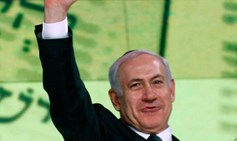
Between Shamir and Ben-Gurion
Written By: Prof. Ofer Kenig
On November 10, 2012, Prime Minister Benjamin Netanyahu became the Israeli prime minister who has served the second longest cumulative term. Dr. Ofer Kenig explores Netanyahu's placement between record-holder David Ben-Gurion and Yitzhak Shamir.

Israel's Political Parties: Strengthen the Party, not the Cult of Personality
Written By: Prof. Gideon Rahat
Prof. Gideon Rahat, Director of Research of IDI's Political Reform project, recommends several changes that can help strengthen Israel's political parties and restore them to reasonable performance.
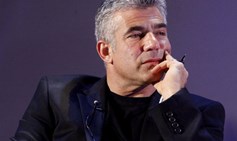
Yair Lapid in a Splinter Party Arena
Written By: Dr. Arye Carmon
Israeli journalist Yair Lapid's announced intention to enter politics sparked both excitement and speculation as to whether he planned to start his own party or to join one of the existing parties. While IDI Former President and Founder Dr. Arye Carmon applauds the entrance of talented, committed people into politics, he stresses the need for them to join one of the large, existing parties in order to stabilize the political system.

Who Wins the Israeli Election? That Depends on How You Count the Votes
Written By: Naomi Himeyn Raisch
An analysis of the different patterns of alliances, unions, and mergers between political parties in Israel, which was originally published in Hebrew in IDI's online "Parliament" journal.

Elections in the Shadow of War (2009)
Written By: Dana Blander
On December 27th, 2008, just weeks before the scheduled general elections, the IDF launched a large scale military operation in the Gaza Strip. Should elections be postponed because of war or should they be held as scheduled? IDI researcher Dr. Dana Blander discusses this question from an historical-legal perspective, drawing on Israeli historical precedents and the experiences of other democracies.

District Elections in Israel: Pro and Con
Written By: Nir Atmor
A broad survey of the various models of district elections that could be adopted in Israel, which includes a comparative international perspective and explores the factors that must be taken into consideration when deciding to adopt such a system in Israel.

How Should the President of Israel be Chosen?
Written By: Prof. Ofer Kenig
Is the institution of the presidency necessary? Who elects the president? Is the election an open vote or secret ballot? Dr. Ofer Kenig explores the situation in Israel and other parliamentary democracies.

Intra-Party Politics
Written By: Prof. Gideon Rahat
Party primaries, though a vital component of the Israeli electoral system, receive little attention from the media and the voting public. In an interview originally published prior to the Israeli general elections in 2006, Dr. Gideon Rahat of the Political Science Department at the Hebrew University in Jerusalem, today a Senior Researcher at IDI, discusses the candidate selection process within Israel's political parties and explores the pros and cons of local and international models.

A Semi-Open Ballot: The Path to Fixing Israel’s Electoral System
Written By: Dr. Assaf Shapira
A reform that introduces a personalized component to Israel's elections would strengthen voter influence, enhance accountability of those voted into power, and improve Israel's democratic system.
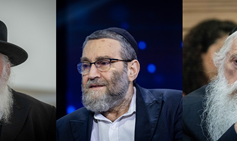
Giving up on the Core Curriculum? Just Wait for the Big Bang!
Written By: Eliyahu Berkovits
The demographic explosion of the ultra-Orthodox sector will no doubt lead the two partners in United Torah Judaism to divorce. When that happens, the minorities including the “New Haredim,” will wield greater power and demand that their children have a future in the working world.
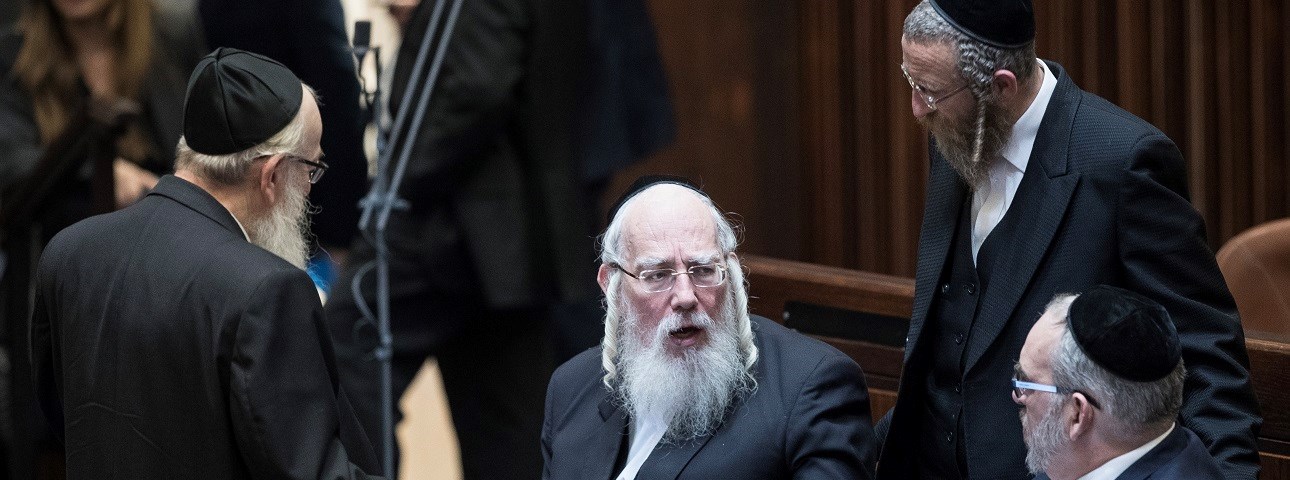
The War that Never Was
Written By: Eliyahu Berkovits
Notwithstanding the drama related to the question of whether the ultra-Orthodox Ashkenazi parties will continue to run together in the current election, there are voices within these communities that might render this arrangement unacceptable in the near future.

Reserved Candidate Slots for Women: A Tool for Improving Society or a Double-Edged Sword?
Written By: Prof. Gideon Rahat, Dr. Chen Friedberg
The dramatic differences among the different parties in terms of women’s representation in realistic candidate slots raise the question of what has gone wrong with the gender quota system. One simple recommendation for gradually increasing these quotas could radically change the situation and help ensure equitable representation for women

The President—A Rubber Stamp or a Shield of Democracy?
Written By: Dr. Dana Blander
To ensure that the President is able to perform his or her symbolic role in the best possible way, it is important to distance the office as much as possible from political and social disagreements and debates.
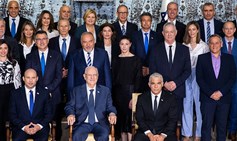
The 36th Government of Israel
Written By: Yohanan Plesner
The new government has potential for the return of normalcy, and even for historic changes

The Presidential Elections: The Rules of the Game 2021
Written By: Prof. Ofer Kenig
Who elects the president? What are the candidacy requirements? What majority is needed to win the election, and how is it obtained? With the approach of the 2021 presidential elections, Prof. Ofer Kenig explains some of the basics.

Despite it All – Israelis Must Vote
Written By: Yohanan Plesner
Fourth election in less than two years – so why should Israelis go out and vote?
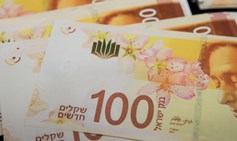
Amendments to the Party Financing Law: A Classic Conflict of Interest
Written By: Dr. Assaf Shapira
In a classic conflict of interests, the parties dip into the public coffers before every election, flouting any semblance of fiscal responsibility
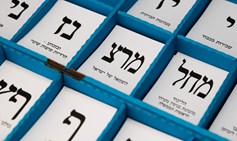
How Could the Rerun Elections have been Avoided?
Written By: Dr. Assaf Shapira
The rerun elections expose a weakness in our system of government and highlight the need to modify the current system for forming a government
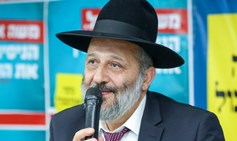
Ultra-Orthodox Parties in Municipalities in Israel
Written By: Dr. Gilad Malach
Tomorrow's elections will determine the local government in 251 cities, towns and municipalities. Of all the political parties represented at a national level in Israel, the ultra-Orthodox parties are the most successful in local government. What are the reasons behind this interesting trend? Read Dr. Gilad Malach's fascinating findings.
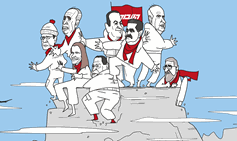
Race to the Top
Written By: Prof. Ofer Kenig
Everything you wanted to know about the Labor Party primaries but didn't know who to ask.

IDI Ahead of the Vote on the V-15 Bill:
‘The bill sets an extremist and dim precedent, which casts a shadow of harsh limitations on freedom of expression’

IDI President Responds to Advancement of V-15 Bill
Today, the V-15 bill advanced to the Knesset, with a vote expected as early as later this week.

